Faculty
Experts in the latest educational practices and policies, our faculty members are committed to equipping culturally competent experts to drive the future of education. These tenured professionals located in Washington, DC, don’t just have a finger on the pulse; they’re driving systemic change from the epicenter of education legislation. Many of our faculty members are pursuing cutting-edge research and all of them strive to ensure you receive the guidance and support you need to succeed.
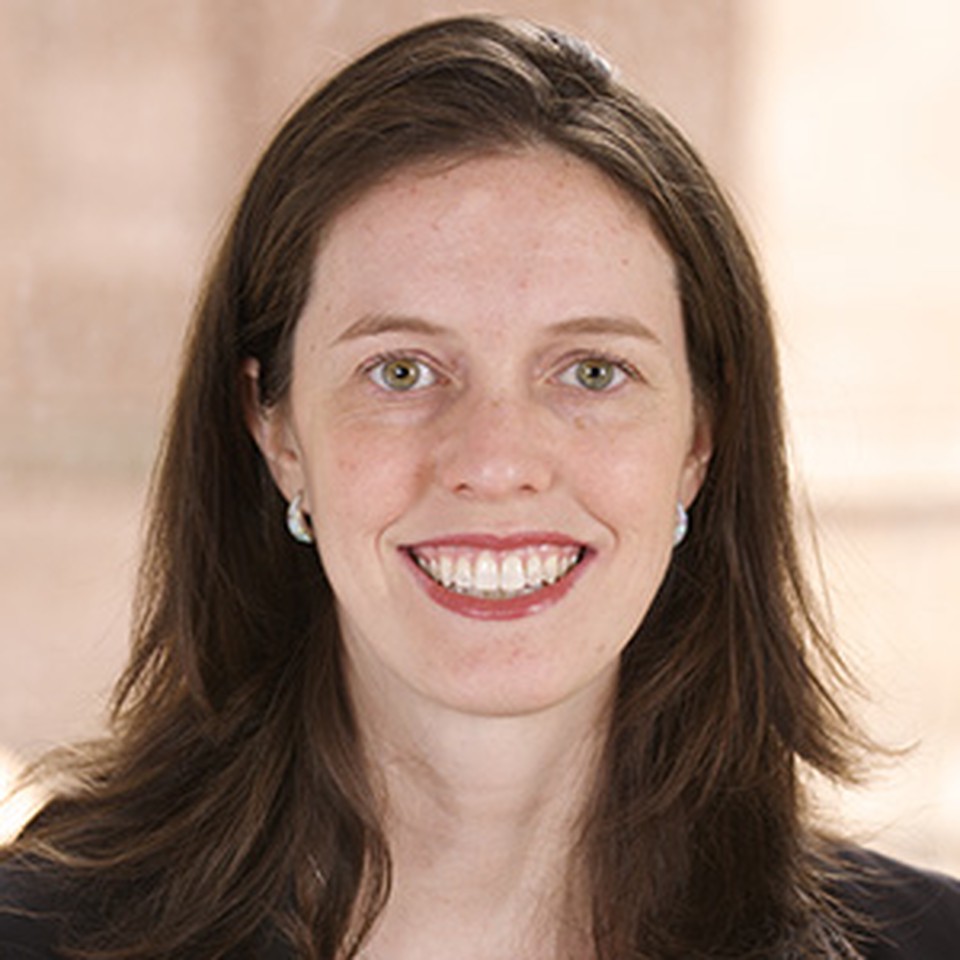
Dr. Corbin Campbell
Dr. Campbell is Associate Dean of Academic Affairs and Associate Professor in the School of Education. Her research, funded by the Spencer Foundation and the National Academy of Education, examines three interrelated streams: college teaching, assessments of higher education quality, and the organizational environments that support faculty in thriving in their careers. Prior to coming to American, Dr. Campbell was Associate Professor in the Higher and Postsecondary Education Program at Teachers College, Columbia University. Dr. Campbell’s research has been published in several top-tier journals, such as the Journal of Higher Education, Research in Higher Education, Review of Higher Education, and Teachers College Record. Her work has been highlighted in news venues, such as Inside Higher Education, the Wall Street Journal, NPR, and the New York Times. Dr. Campbell serves on several editorial boards including Review of Higher Education and Review of Educational Research. In 2015, Dr. Campbell was awarded the National Academy of Education/Spencer Postdoctoral Fellowship. She also served on a committee of the National Academies to assess interpersonal and intrapersonal competencies in college and a committee of the National Center for Education Statistics, revising the national postsecondary sample surveys. Dr. Campbell received her Ph.D. in Education Policy from the University of Maryland, her M.A. in Higher Education and Student Affairs from The Ohio State University, and her B.A. in Psychology from the University of Virginia.
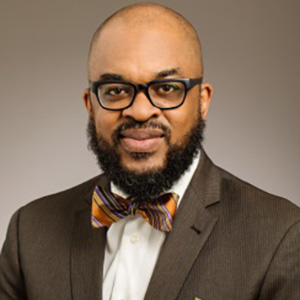
Rodney Hopson
Rodney Hopson, PhD is an accomplished schoiar, academic leader and thought partner who serves as Acting Co-Dean and Professor, School of Education. Most recently, Hopson served as Professor of Evaluation in the Department of Educational Psychology, College of Education, with appointments in the Department of Educational Policy and Organizational Leadership and the Center of African Studies at the University of Illinois-Urbana Champaign. As part of the inaugural University of Illinois System Distinguished Faculty Recruitment Program, Hopson served as catalyst in re-envisioning the Evaluation unit in the department, developing externally funded partnerships with and for PhD students, and leading assistant professor development efforts.
Hopson received his doctorate from the Curry School of Education, University of Virginia, with major concentrations in educational evaluation, anthropology, and policy, and sociolinguistics. He was awarded a National Institute on Drug Abuse (NIH) postdoctoral fellowship at the Bloomberg School of Public Health, Johns Hopkins University. Hopson is an American Educational Research Association (AERA) Fellow, and has affiliated previously in the Faculty of Education, University of Namibia as a JW Fulbright Scholar and the Centre of African Studies, Cambridge University (UK). Currently he is affiliated with the School of Health, Victoria University-Wellington (Aotearoa New Zealand), is Editor of the Studies in Educational Ethnography Book Series, Emerald Publishers, and Co-Editor of Educational Policy as/in Practice: Critical Cultural Studies, Information Age Book Series.
Central to Hopson’s research agenda over the last 25 years are questions that: 1) analyze and address the differential impact of education and schooling on marginalized and underrepresented groups in diverse global nation states; and 2) seek solutions to social and educational conditions in the form of alternative paradigms, epistemologies, and methods for the way the oppressed and marginalized succeed and thrive despite circumstances and opportunities that suggest otherwise. He has co-authored and co-edited 10 books, including Culturally responsive inquiry in education: Improving research, evaluation, and assessment (Harvard Education Press, 2022), Tackling wicked problems in complex ecologies: The role of evaluation (Stanford University Press, 2018), New directions in educational ethnography: Shifts, problems, reconstruction (Emerald, 2016), Power, voice, and the public good: Schooling and education in global societies (Elsevier, 2008), and others.
Hopson’s cumulative work is driven by quests to: a) understand the role of language as a harbinger of social and educational change, especially in post-apartheid and postcolonial nation states that wrestle with the tensions and opportunities of democracy and freedom; and b), emphasize the transformative possibility of developing mechanisms that promote educational and social equity through the development of communities of practice in interdisciplinary and transdisciplinary ways to broaden participation, inclusion, and diversity for those often forgotten and underserved in schools, community, social systems, and the larger society. His work has been funded by philanthropic and governmental agencies such as the National Science Foundation, the Robert Wood Johnson Foundation, Ford Foundation, W.K.Kellogg Foundation and other local and international funders. Most notably, he is the founding Program Director of the American Evaluation Association (AEA) Graduate Education Diversity Internship (GEDI) Program, a program in its 20th year that supports graduate students of color from traditionally underrepresented communities to embed culturally responsive evaluation approaches and practices in their yearlong training, current academic studies, and future career.
MAT
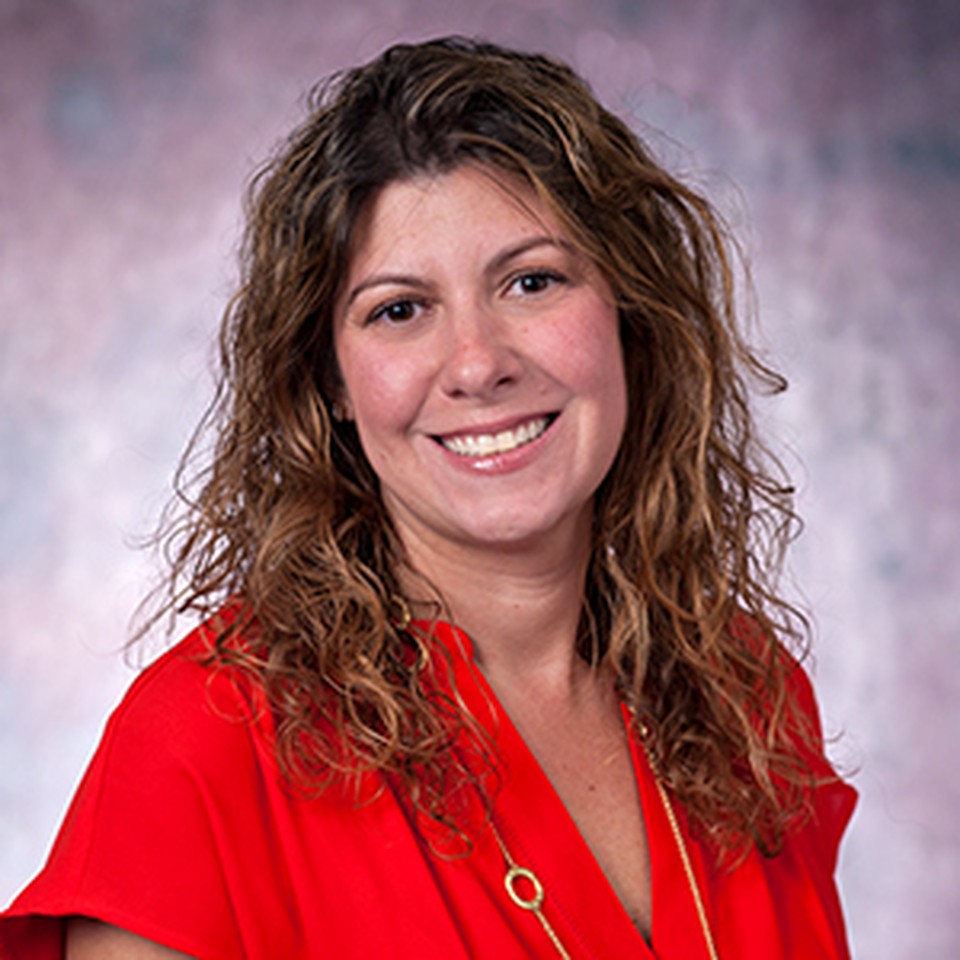
Kimberly Block
Kim Block is a seasoned educator and school counselor. Block earned her B.A. in Elementary Education from American University and M.A. in Counseling from The Johns Hopkins University. She worked as a teacher and counselor in Montgomery County Public schools in both elementary and middle schools. Block joined American University in the School of Education in 2013, teaching and mentoring students as an adjunct faculty member and practicum and student teaching supervisor. She enjoys sharing her expertise and knowledge with students in the classroom. Outside of American, Block is an academic coach, college admission consultant and community volunteer.
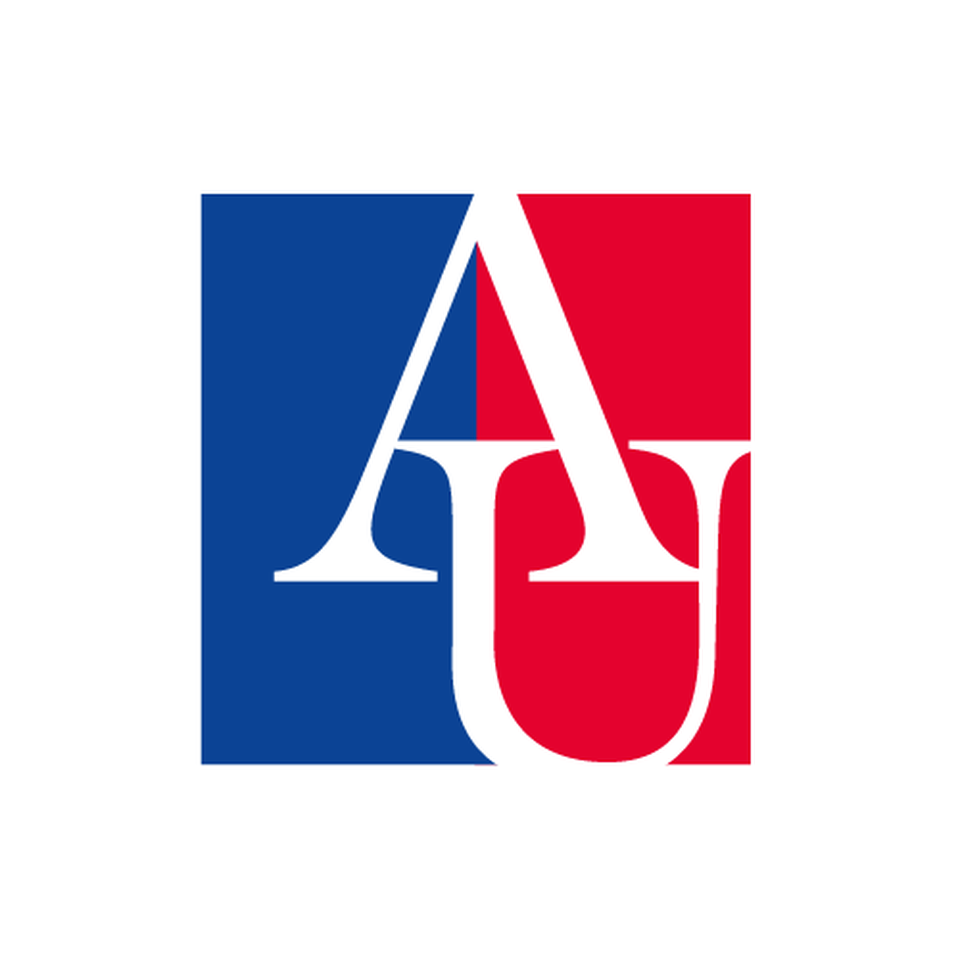
Sareeta Carter Schmitt
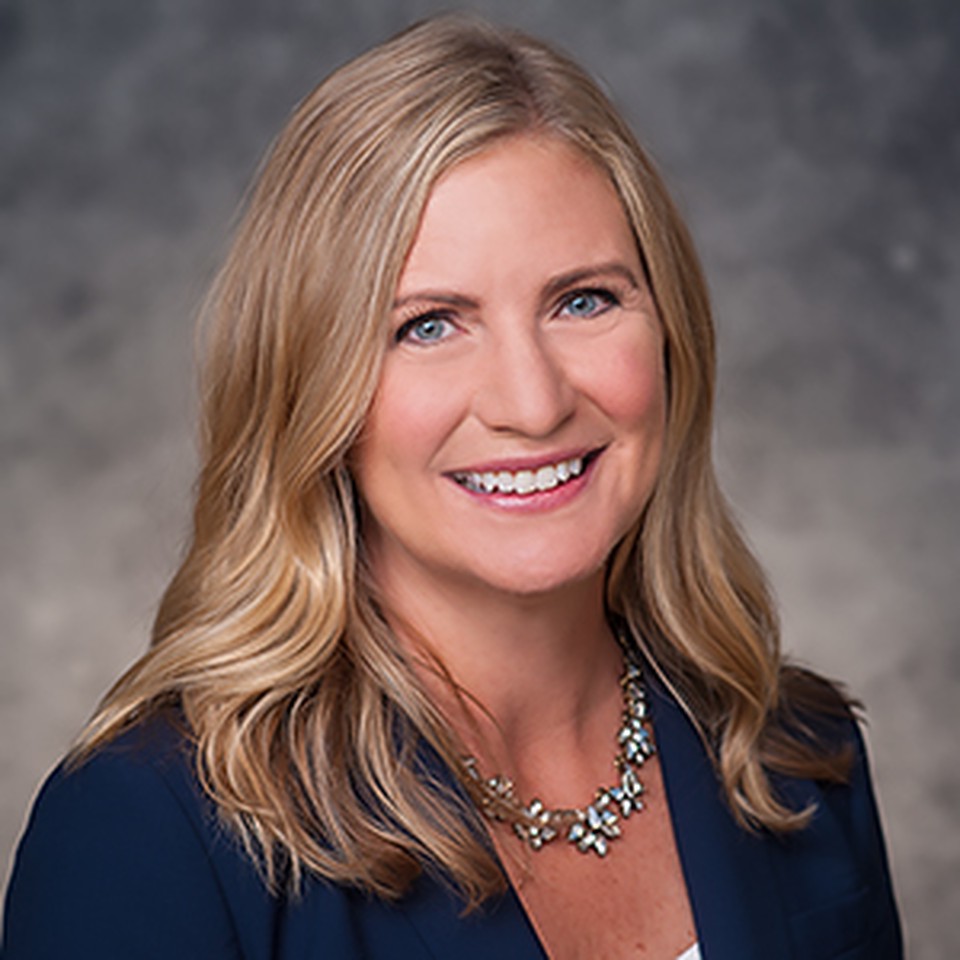
Jody Hagen-Smith

Amanda Laurier

Vince O’Neill
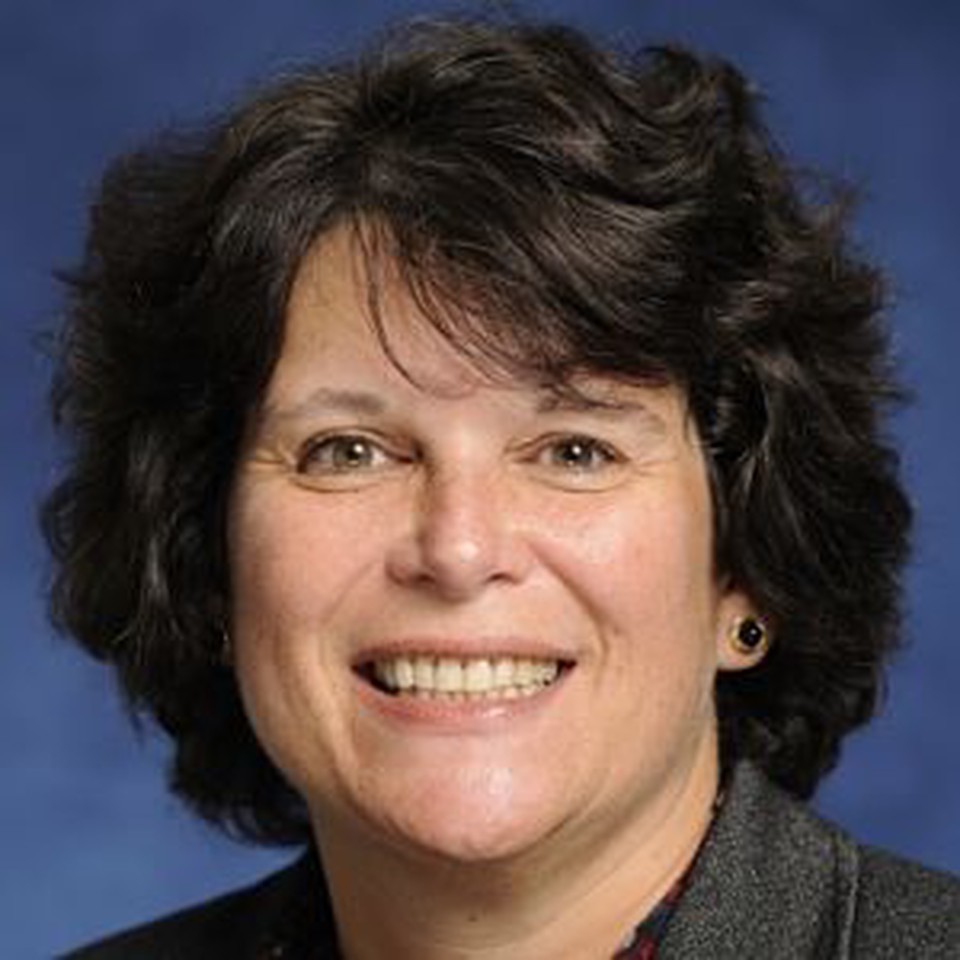
Carolyn Parker
Carolyn Parker is the Director of the Master of Arts in Teaching Program in the School of Education. She began her career as a science educator as a Peace Corps volunteer in Guatemala. Upon her return to the United States, she earned an M.A. in science teaching and then taught high school science in New York State and Miami, Florida. Dr. Parker earned her Ph.D in Curriculum and Instruction from the University of Maryland College Park. Dr. Parker’s current research focus is twofold, focusing on teacher education and issues of equity and access in STEM education. Most recently, Dr. Parker was a principal investigator of a National Science Foundation Math-Science Partnership award, STEM Achievement in Baltimore Elementary Schools (SABES). The SABES project served nine high poverty Baltimore City elementary schools by improving STEM curriculum and instruction. The project included research focused on the development and delivery of rigorous curriculum supported by intensive and sustained teacher professional development that included in-school coaching, peer classroom visits and content intensive STEM Academies In addition to the school day component, the project offered a STEM-focused, out-of-school day program where students completed engineering-focused projects relevant to local communities. Dr. Parker’s has authored numerous book chapters, technical reports, and peer-reviewed papers. Her work appears in the Journal of Research in Science Teaching, Science Education, and Cultural Studies in Science Education. Prior to her arrival at American University, Dr. Parker taught the Johns Hopkins School of Education and the George Washington University.
In the News
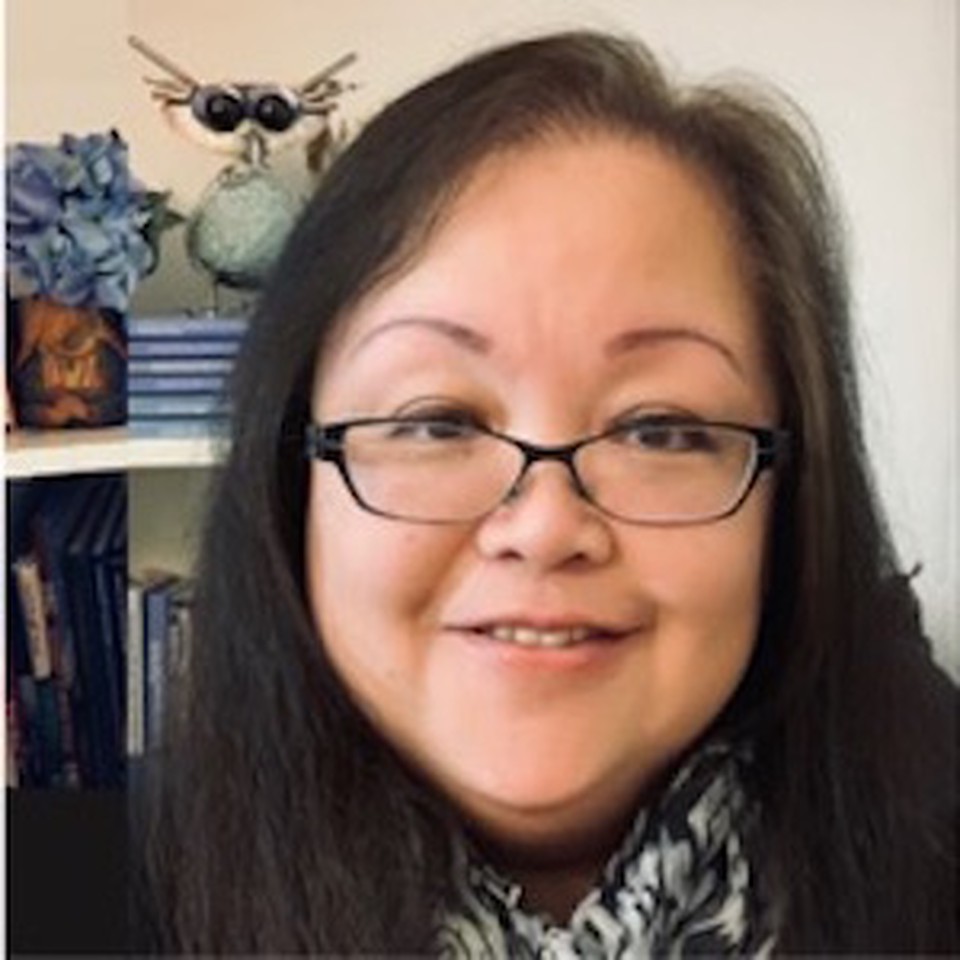
Vivian Maria Vasquez
Dr. Vivian Maria Vasquez is a Professor of Education at American University. She has worked in the field of education for over 30 years. Her research interests are in critical literacy, early literacy and information communication technology. Her publications include eleven books and numerous book chapters and articles in refereed journals. Prior to coming to AU, Dr. Vasquez taught pre-school and public school for 14 years. She has held appointive and elective offices in scholarly organizations including The National Council of Teachers of English, The American Educational Research Association, The International Reading Association and The Whole Language Umbrella. Dr. Vasquez’ awards include the prestigious NCTE Outstanding Elementary Educator in the English Language Arts Award (2019), the NCTE Advancement of People of Color Award (2013), the AERA Division B Outstanding Book of the Year Award (2006) and The James N. Britton Award (2005). She was also the first recipient of the AERA Teacher Research SIG Dissertation Award (2004). Most recently the NCTE Early Childhood Assembly honored Dr. Vasquez with a scholarship in her name – The Vivian Vasquez Teacher Scholarship. Dr. Vasquez is host of the CLIP(critical literacy in practice) Podcast. You can find more regarding her work at https://american.academia.edu/VivianMariaVasquez.
In The News
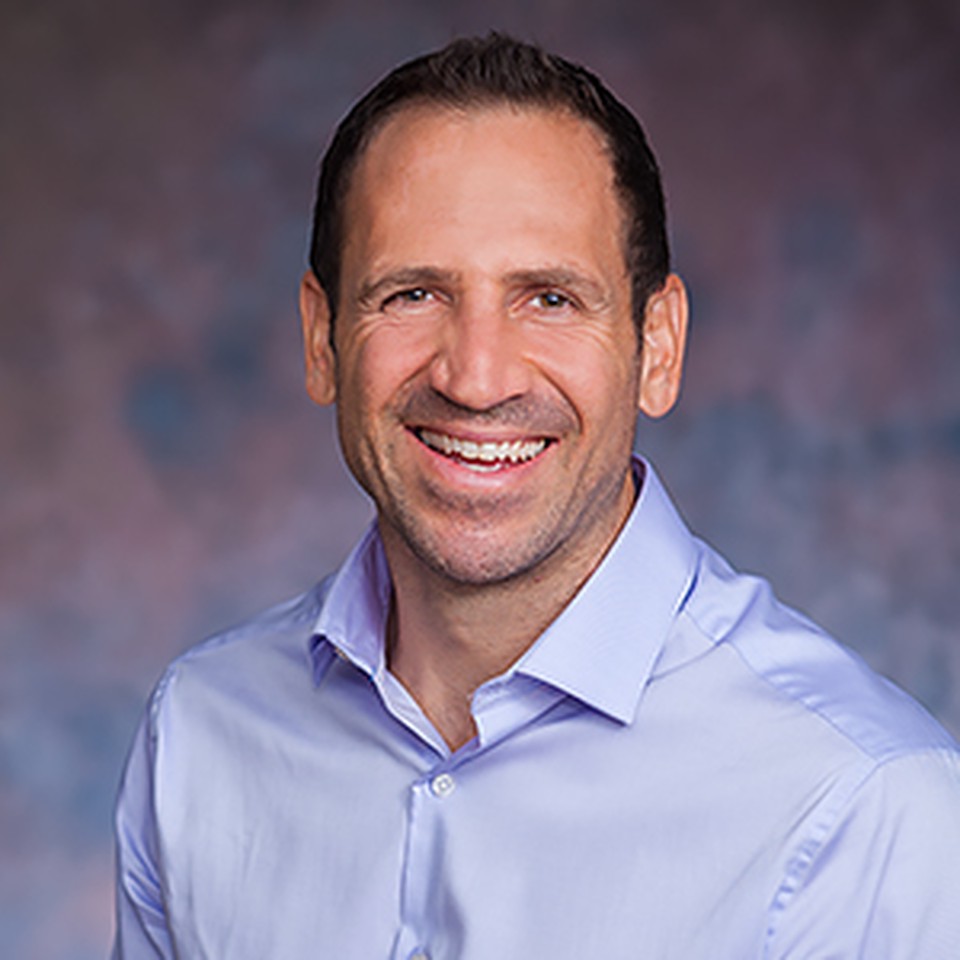
Stephen Vassallo
In his teaching and scholarship, Vassallo works to merge perspectives to critically explore issues related to teaching and learning, especially in the context of academic self-regulation. He draws from sociology, philosophy and educational psychology to critically examine some of the ethical, conceptual and pedagogical complexities associated with teaching self-regulated learning. Using these perspectives, Vassallo explores the implicit and explicit roles that choice, control, autonomy and freedom play in efforts to teach and learn self-regulation. Vassallo published Critical Educational Psychology to widespread acclaim in 2017.
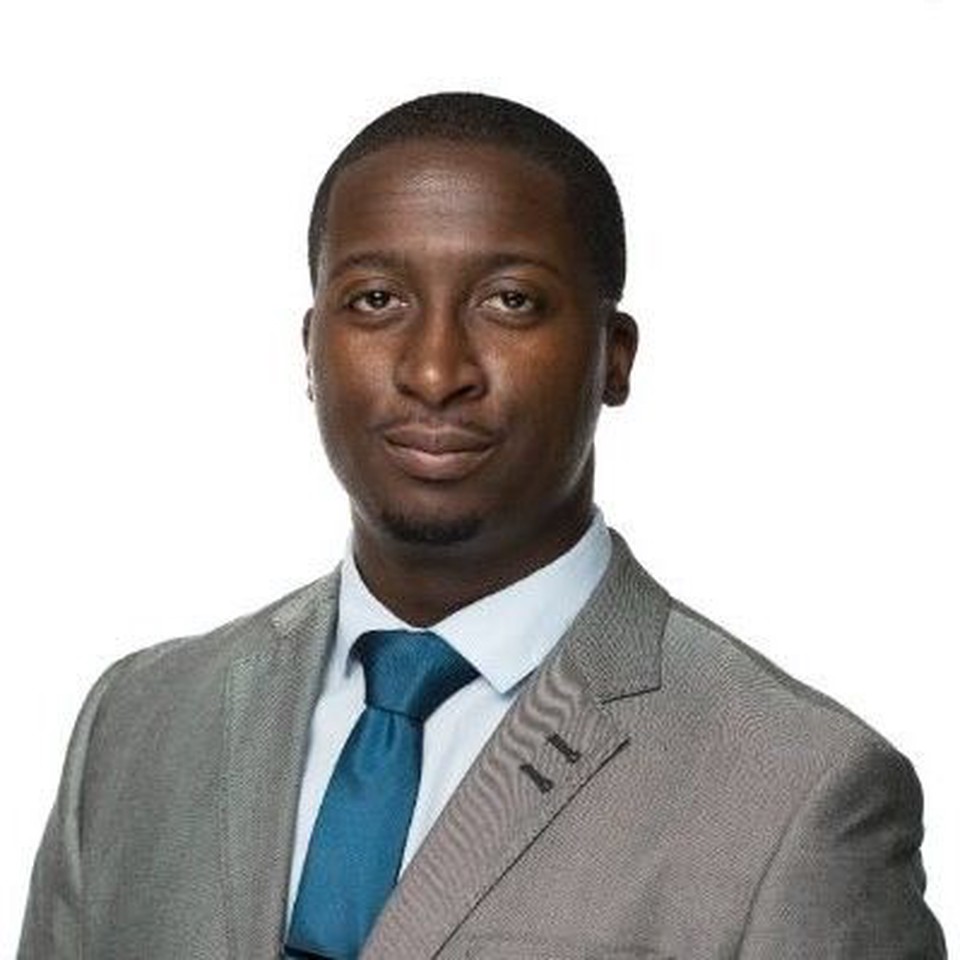
Jayson Wilkinson
MEd
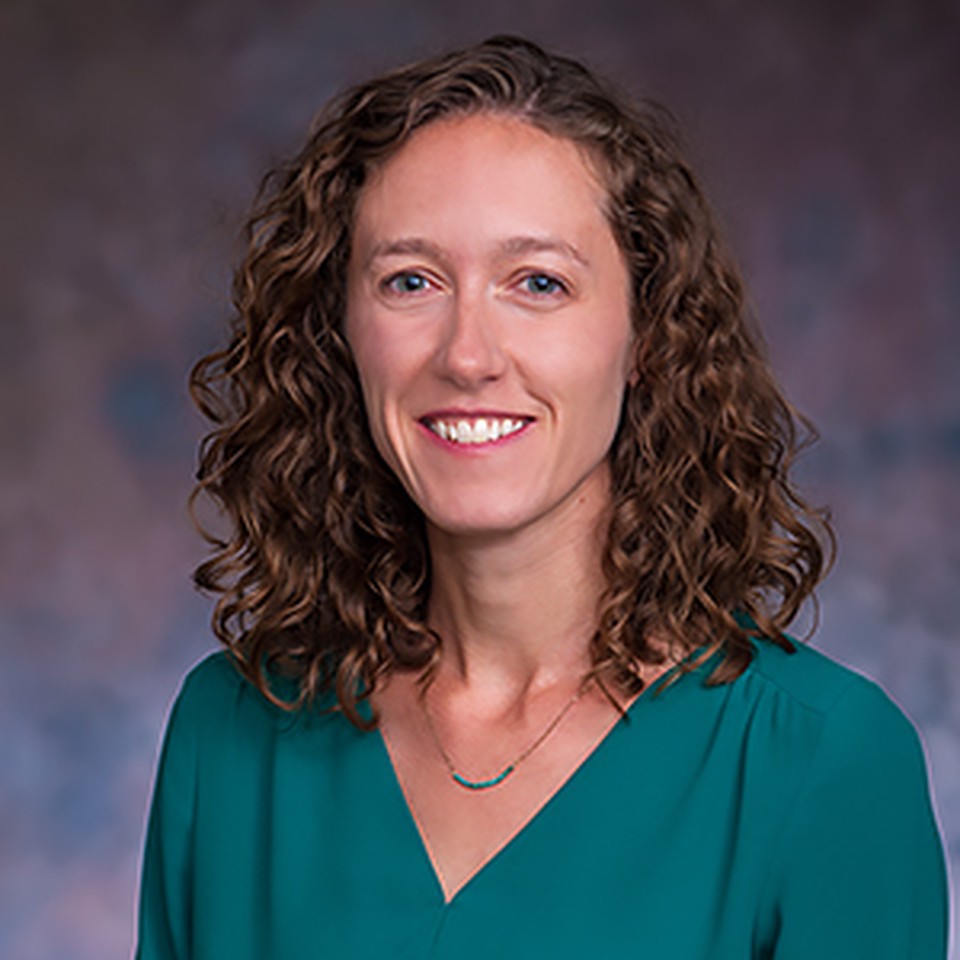
Emily Grossnickle Peterson
Dr. Emily Grossnickle Peterson is an Assistant Professor in the School of Education and an affiliate faculty member in the Psychology Department and the Behavior, Cognition, and Neuroscience PhD program. She joined the faculty at AU in 2017 after receiving a PhD in Human Development and Quantitative Methodology with a specialization in Educational Psychology from the University of Maryland, College Park. In her research, Dr. Peterson applies methods from educational psychology and cognitive neuroscience to investigate cognitive and motivational factors that support (or hinder) student learning in STEM (science, technology, engineering, mathematics). Her current research examines questions such as why spatial reasoning skills predict science achievement and how teachers support student curiosity.
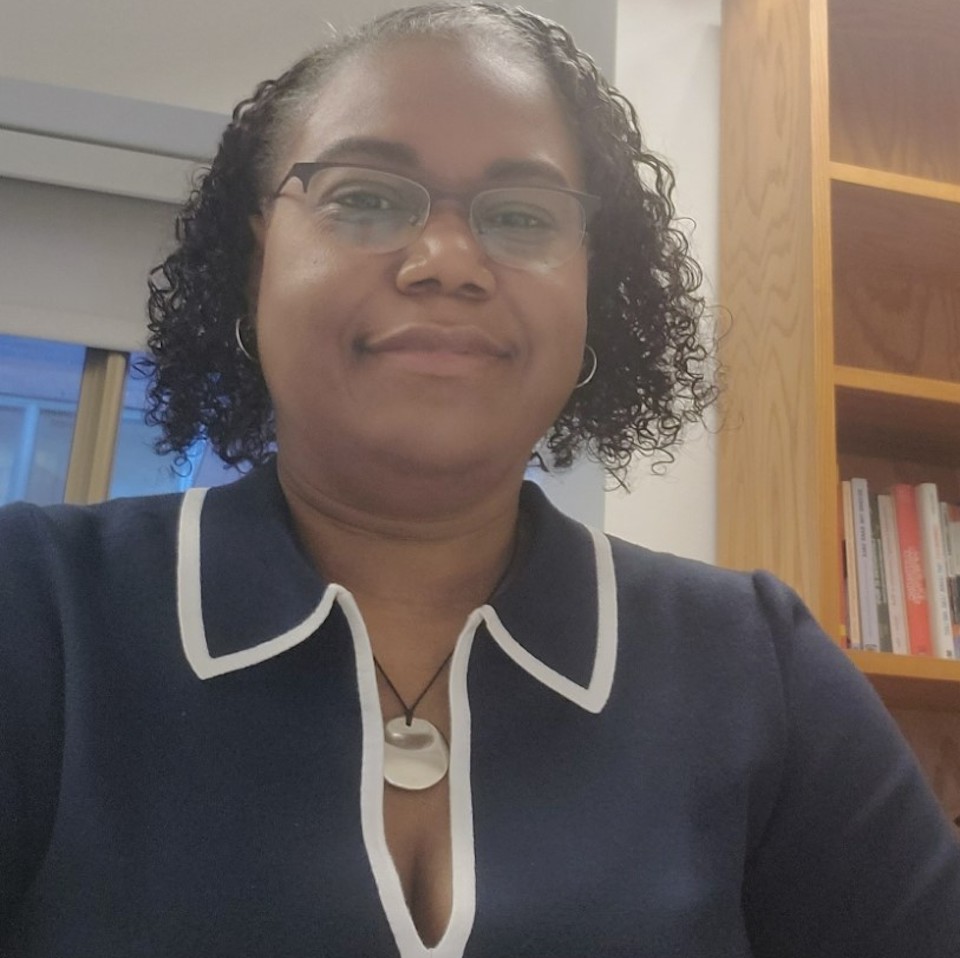
Kecia Hayes
Dr. kecia hayes has been a champion of antiracist k-12 leadership and praxis across a variety of organizational settings in New York City for more than two decades. Most recently, she led two community-focused organizations at Columbia University including the Double Discovery Center where she transformed the organization’s approach to college access and support for low-income and first-generation community youth; and the Raising Educational Achievement Coalition in Harlem where she was the founding Director and chief architect of Teachers College’s university-assisted, community school initiative. While at Columbia, kecia also founded and co-chaired Columbia’s Collaborative of Community Programs for Youth & Families to examine and extend the University’s work as an anchor institution in Harlem. kecia was an Assistant Professor of Educational Leadership at Montclair State University where she taught courses in leading school reform & improvement, community & school relations, research methods, and group dynamics. She also was a Leadership Development Facilitator/Senior Program Officer at New Visions for Public Schools where she provided intensive school improvement support for administrators and school teams at seven NYC public schools. She worked for the New York State Education Department to help with implementation of their Race to the Top initiative, with specific focus on building networks of data-driven learning within and across schools. Her dissertation documented the educational experiences of young men at Rikers Island and examined the impact of a Sternberg’s multiple intelligence literacy program on the young men. kecia’s professional work and research primarily focus on urban school leadership and school structures; community engagement; and anchor institutions. kecia has presented at numerous conferences including AERA and has several publications.
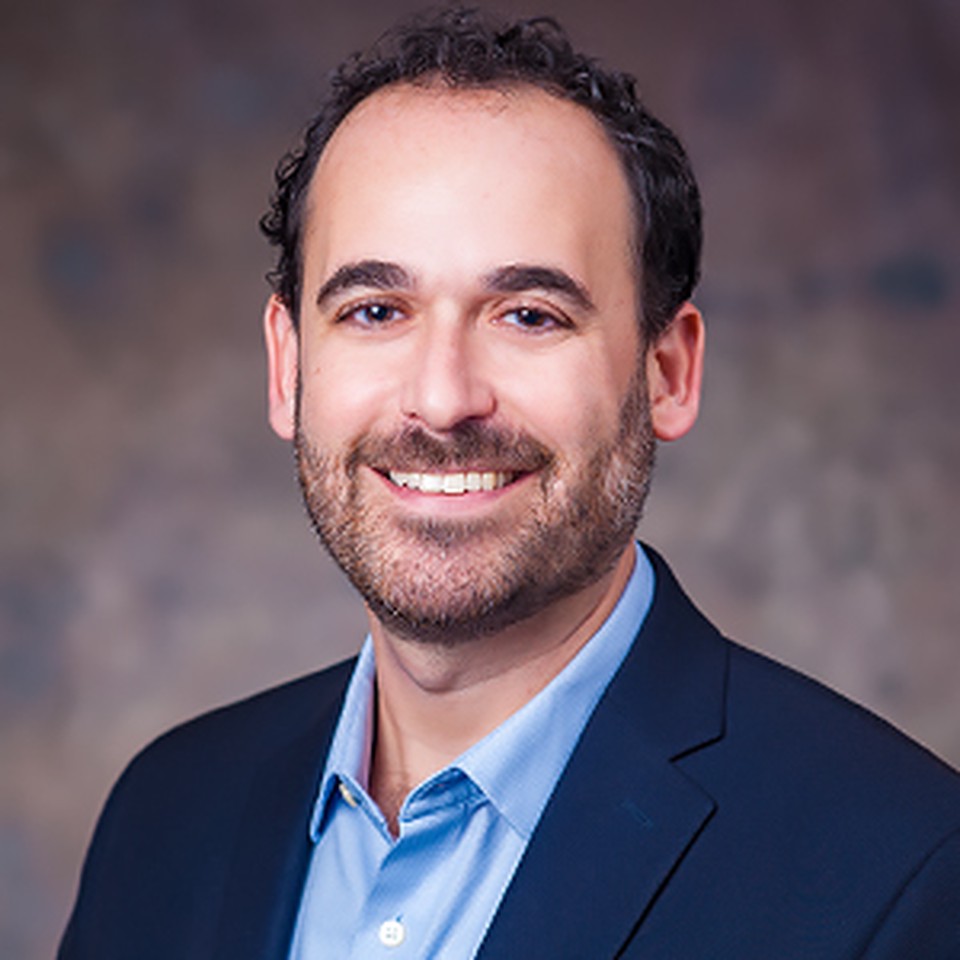
Reuben Jacobson
Dr. Reuben Jacobson has worked at the intersection of education research, policy, and practice for nearly 20 years. He is committed to educational change and equity and has substantial experience designing and implementing strategies that bring stakeholders together to work on common challenges. Reuben served as the Deputy Director for the Coalition for Community Schools at the Institute for Educational Leadership (IEL) where he helped grow and strengthen community schools by mobilizing national partners and local leaders. He has researched and written about the growing field of school and community partnerships for organizations such as the Brookings Institution and the Center for American Progress. Reuben worked at the American Institutes for Research as an education research analyst and spent two challenging and wonderful years teaching fifth and sixth grade students in D.C. Public Schools as a D.C. Teaching Fellow. He is an alumnus of the Education Pioneers Fellowship and IEL’s Education Policy Fellowship Program.
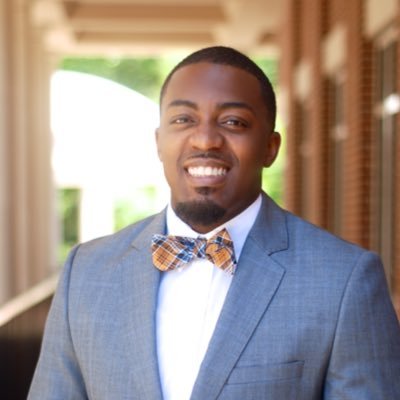
Phelton Moss
Dr. Phelton Cortez Moss is a Senior Professorial Lecturer of Education Policy & Leadership at American University and is a Senior Policy Adviser to Congresswoman Frederica Wilson (FL-24) who serves as Chair of the Higher Education and Workforce Investment Subcommittee. Prior he served as Tenure-Track Assistant Professor of Teacher Education at Tougaloo College and Senior Leader at the Mississippi Department of Education.
He has served as a Policy Fellow for Education Leaders of Color and provided strategic and policy advice across a range of national education issues for members, including early childhood, K-12, postsecondary, higher education, career, and technical education, historically black colleges and universities (HBCUs), teacher diversity, and workforce development. Notbaly, he led the filing of the historic American Teacher Act to establish a federal grant program to incentivize states to raise teacher salaries. In addition, His research focus is focused on building school and district leaders capacity to diversify the educator workforce and improve efforts to increase teacher recruitment and retention.
He has ten years of experience working in education and education policy from English teacher, policy maker, and principal. As the youngest serving principal in MS, his work in moving an underperforming middle school from an F to C in two years led him to become the Bureau Director of Educator Effectiveness and Talent Acquisition at the Mississippi Department of Education working on K-12 education policy issues including teacher diversity, teacher/leader evaluations, teacher recruitment and retention, educator licensure, and issues of inequity in the distribution of effective teachers.
Most notably, he led the design and launch of the nation’s first state-run teacher residency program with a $4.5M Kellogg Foundation Grant to address the state’s teacher shortage and increase the diversity of the educator workforce in Mississippi. While serving at the Mississippi Department of Education, he completed the year-long national School Systems Leaders Fellowship along with twenty senior education leaders from across the country and received training to become a school systems leader.
Phelton began his career in education as a high school English teacher in Greenwood, Mississippi, where he was Teacher of the Year for two consecutive years, and corps member of Teach for America. He holds a Ph.D. in Educational Leadership from the University of Mississippi and a BA in Public Policy Leadership and English from the University of Mississippi. He holds a certificate in Education Finance from Georgetown University. Phelton is a member of The Reading League National Board of Directors. He is a member of Alpha Phi Alpha Fraternity, Inc.

Eugene Pringle
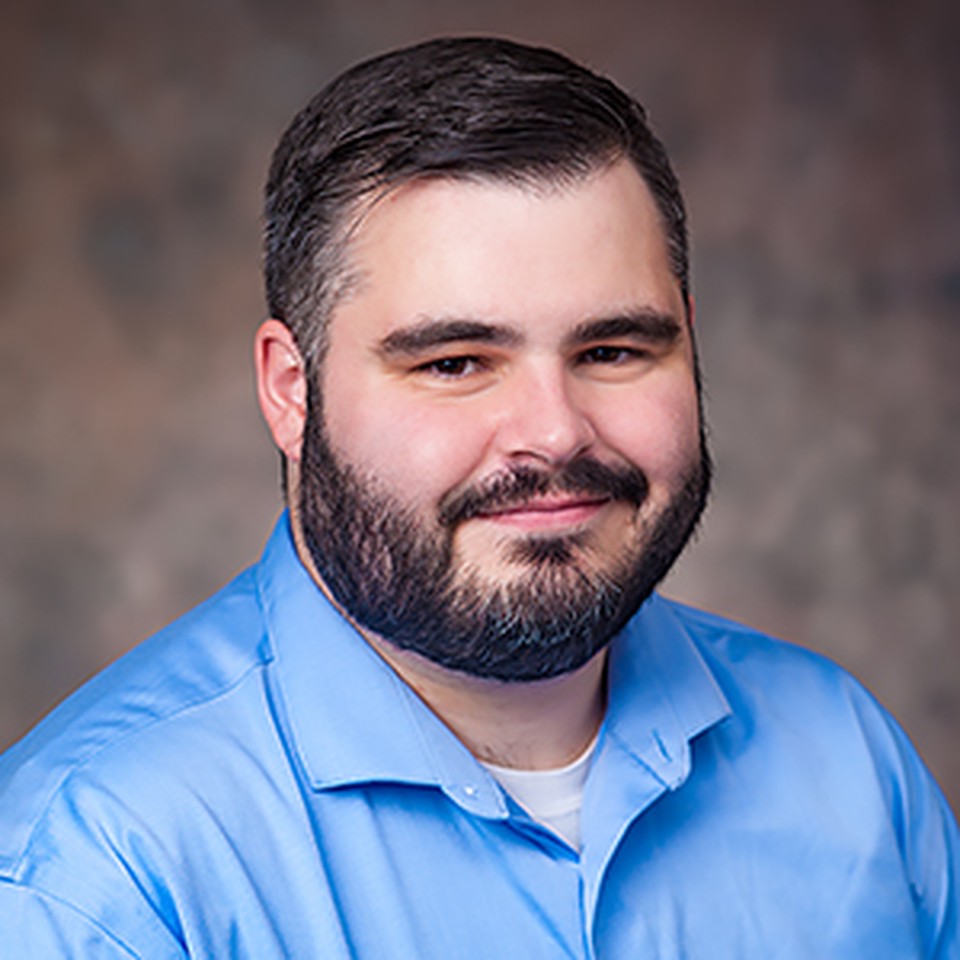
Michael Scott
Michael Scott is an adjunct instructor of research methods in the EPL program at American University. He is also a Ph.D. candidate in the Department of Educational Leadership and Policy at The University of Texas at Austin, with a graduate portfolio in applied statistical modeling. His research uses the geographic principle of place to explore mechanisms of policies as they affect students of historically marginalized backgrounds. In doing so, he interrogates policies and practices related to both schools and communities employing both ethnographic and quantitative methods. His dissertation project examines the experiences of adolescents displaced by gentrification. He is involved in other research that examines the geography of school choice, as well as the role of education in health outcomes. In the summer of 2017, he was a Bill Archer Graduate Fellow with the University of Texas System, where he spent the summer working as an intern with the National Center for Education Research, a center of the Institute of Education Sciences, U.S. Department of Education. In the summer of 2018, he was a scholar of educational research at the Summer Program in Quantitative Methods of Social Research at the Inter-university Consortium for Political and Social Research (ICPSR), University of Michigan.
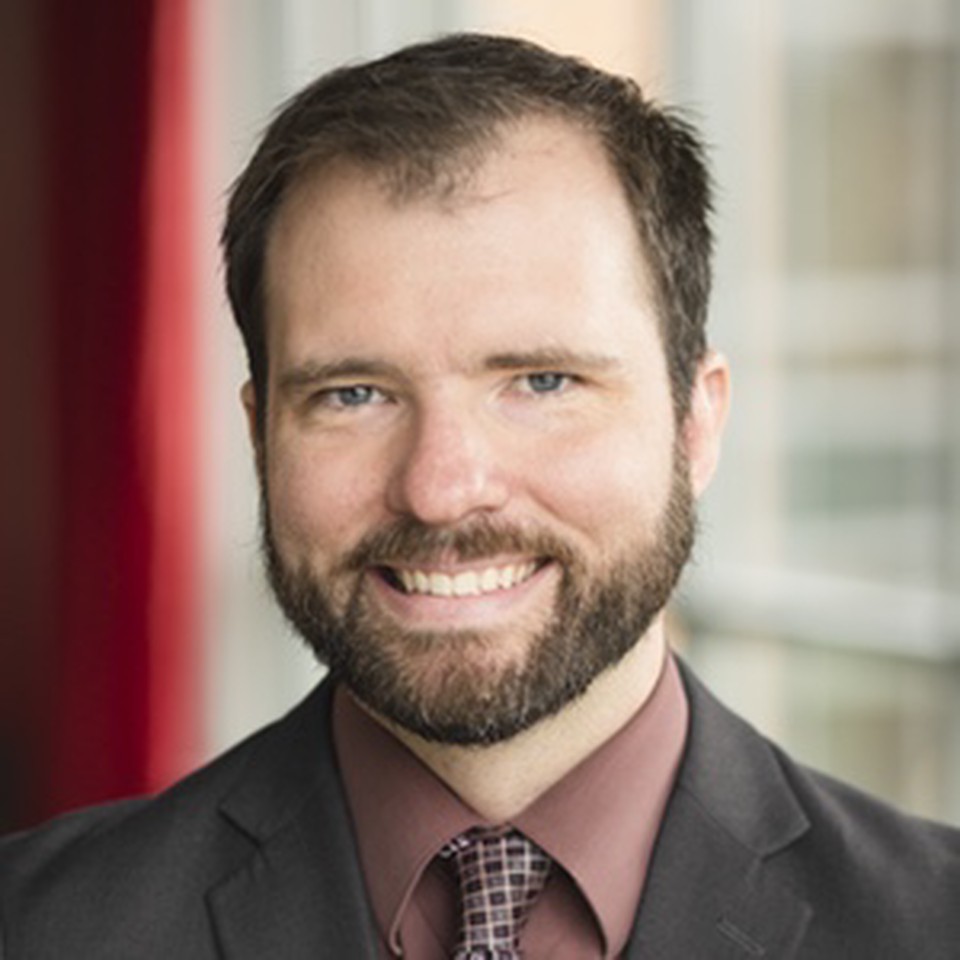
Robert Shand
Robert D. Shand is Assistant Professor in the School of Education at American University. He received his Ph.D. in Economics and Education from Teachers College, Columbia University. A former high school economics and government teacher, his interests lie at the intersection of research, policy and practice. His current research focuses on teacher improvement through collaboration and professional development and how schools and teachers use data from economic evaluation and accountability systems to make decisions and improve over time. Recent work with colleagues at the Center for Benefit-Cost Studies of Education at Teachers College has emphasized the unique opportunities and methodological challenges of evaluating complex partnership programs, including the university-school-community partnership Raising Educational Achievement Coalition of Harlem, and the comprehensive student support program, City Connects. He is a co-author of the third edition of Economic Evaluation in Education: Cost-Effectiveness and Benefit-Cost Analysis, and he has contributed to publications in the American Journal of Evaluation, Educational Evaluation and Policy Analysis, and the Journal of Research on Educational Effectiveness.
In The News
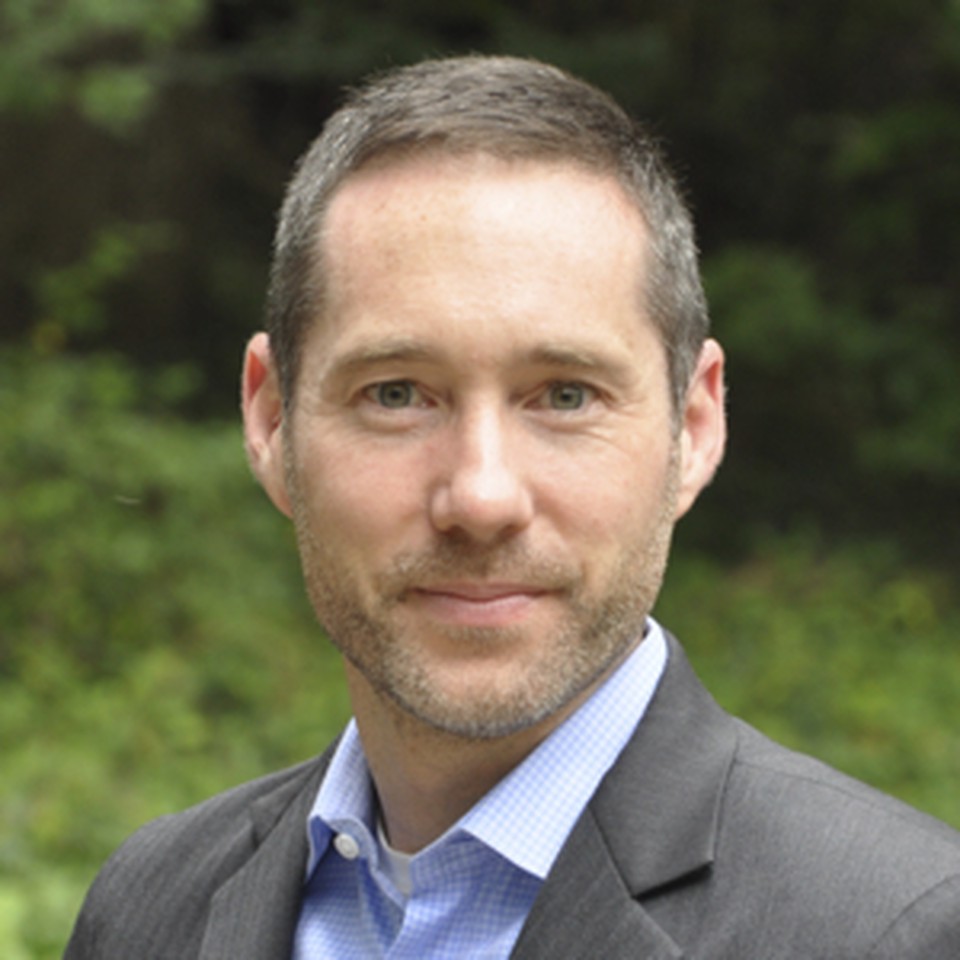
Jason Snyder
Jason Snyder’s teaching and research focuses on education law and education policy. He developed and served as Director of AU’s Education Policy and Leadership (EPL) program from 2014-2018. Prior to joining American University’s faculty, he served as Deputy Assistant Secretary for Policy in the U.S. Department of Education’s Office of Elementary and Secondary Education. He initially joined the Department of Education through the White House Fellows program, a nonpartisan program for public service and leadership.
Snyder previously served as an education-law attorney and social studies teacher. He practiced education and appellate law at Hogan & Hartson LLP, where he advised school districts and drafted briefs in appellate courts, including the U.S. Supreme Court. Before joining the firm, Snyder served as a law clerk to the Honorable Richard Leon of the U.S. District Court for the District of Columbia. He also taught government, history, and economics for six years in public secondary schools and for one year at the China Foreign Affairs University in Beijing.
Snyder served as an Adjunct Professor of Law at Georgetown University Law Center, where he taught Education Law and Policy. He also served as student body co-president at Stanford University and Editor-in-Chief of the California Law Review at U.C. Berkeley School of Law.
In The News
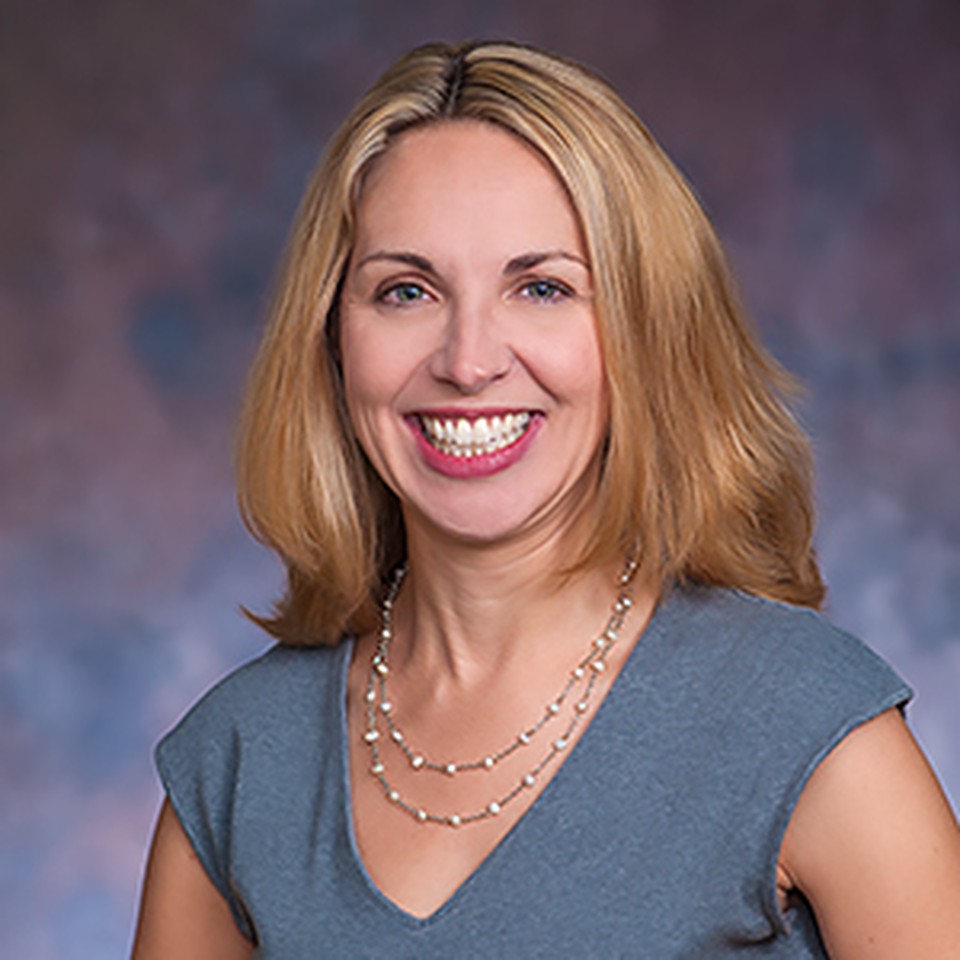
Jennifer Steele
Dr. Jennifer L. Steele is an Associate Professor in the School of Education at American University, and an affiliate faculty member in the Department of Public Administration and Policy. Her research, which emphasizes quantitative methods that support causal inference, focuses on urban education policy at the K-12 and postsecondary levels. She recently led a five-year federally-funded evaluation of an urban school leader preparation program, and she currently co-leads a study funded by the U.S. Department of Education’s Institute of Education Sciences (IES) to examine achievement effects of a statewide scale-up of dual-language immersion education in Utah. The latter work builds on a randomized study of dual-language immersion benefits and costs that she led in Portland, Oregon, also with IES funding. Her other work, which has been funded by entities such as the Bill & Melinda Gates Foundation, the American Council on Education, and the Lumina Foundation, has examined the distribution of teacher effectiveness in urban districts; teachers’ responsiveness to financial incentives for working in low-performing schools; implementation of the Post-9/11 GI Bill; and effects of competency-based education in five states. She previously worked as a policy researcher at the RAND Corporation, as a teacher at the elementary and secondary levels, and as a manager of teacher recruitment and training for a private education company. She received her doctorate in administration, planning, and social policy from Harvard University.
EdD
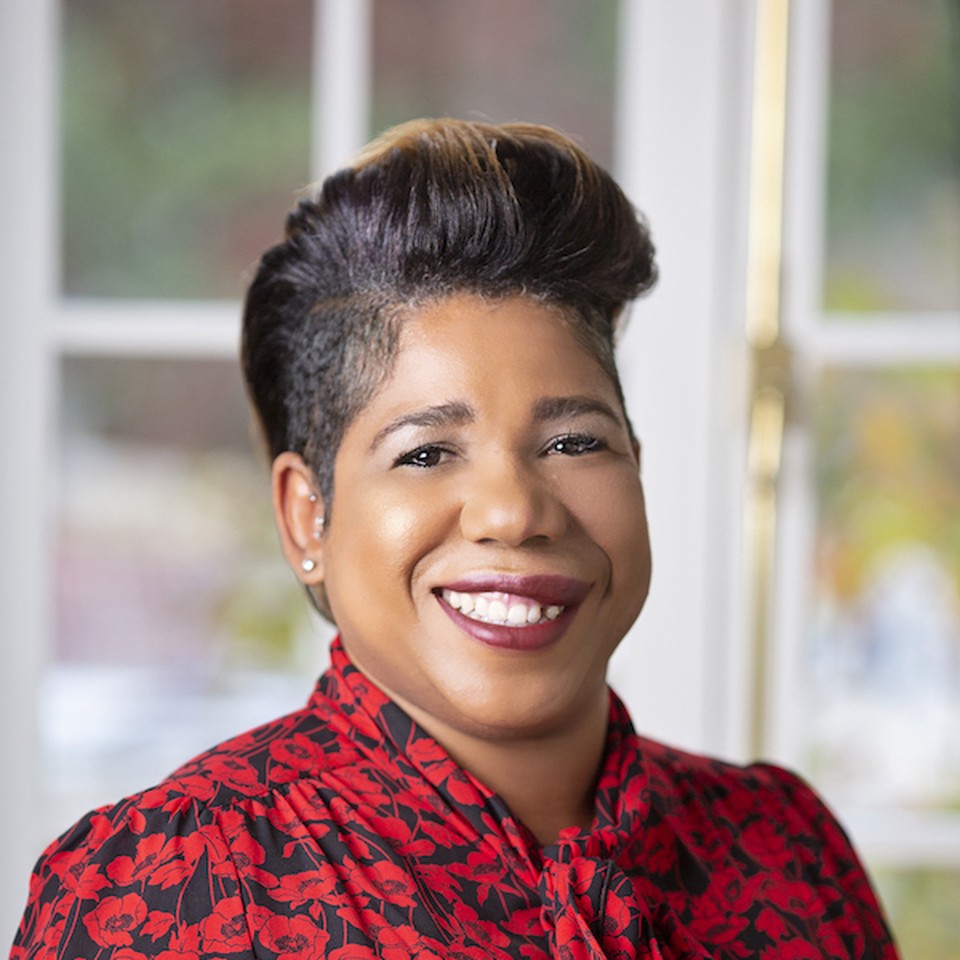
Cecily Darden Adams
Cecily currently leads evaluation, learning and knowledge management with Flamboyan Foundation, where the evidence she gathers and produces will support the identification and dissemination of effective family engagement strategies and innovations in DC and beyond. She is drawn to this work because she grew up in a family of educators, has worked toward the improvement of equitable educational opportunities her entire professional career, and embraces the potential for effective education to impact and inspire each generation of children and youth.
Prior to Flamboyan, Cecily served the students of Prince George’s County Public Schools, MD (PGCPS) as the Executive Data Strategy Coordinator in the Division of Human Resources, where she led the human capital strategic initiatives for the school district and focused on the measurement of district initiatives with the PGCPS Department of Research and Evaluation. Cecily’s prior work experience includes research with the University of Maryland, College Park, U.S. Census Bureau, and the American Institute for Research. Cecily’s community service work is focused on the children of Montgomery County, MD, where she is raising two awesome sons who are growing into young men that will change the world.
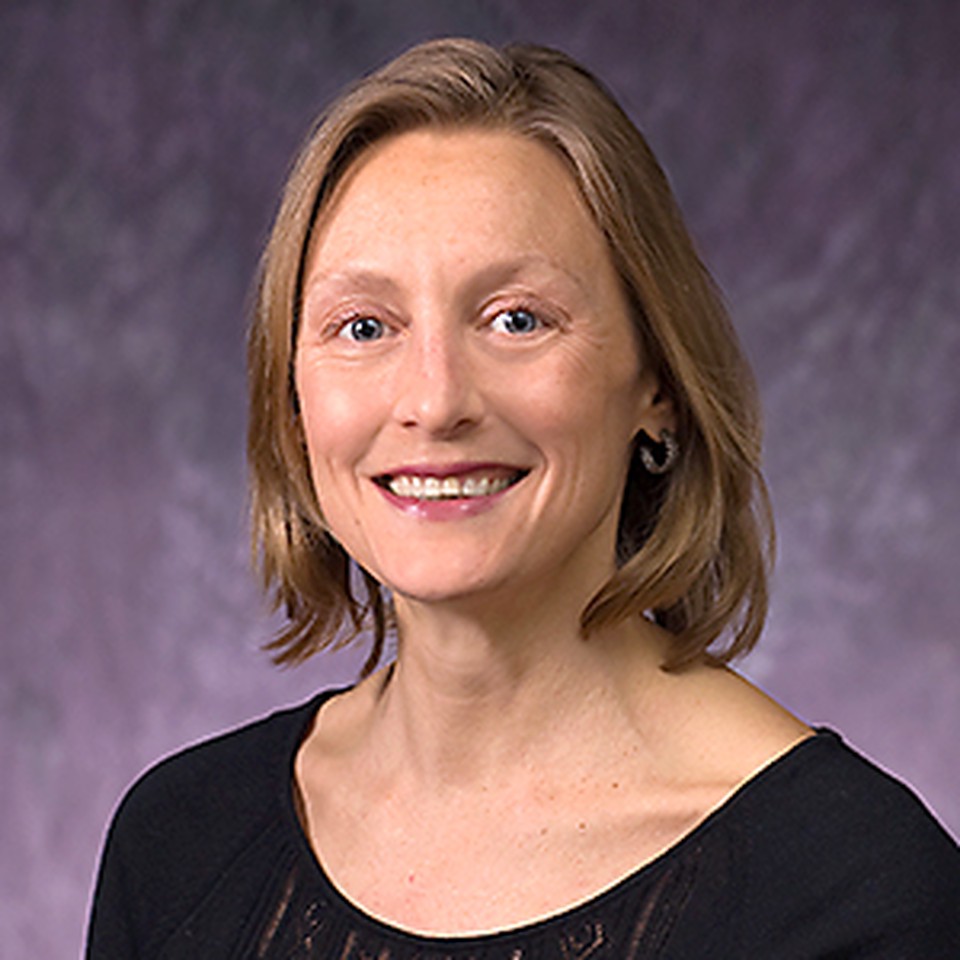
Alida Anderson
Alida Anderson earned her PhD in special education from the University of Maryland, College Park. Research and teaching interests focus on contextual factors associated with language development and literacy acquisition in children from diverse backgrounds. Research projects have focused on development of literate oral language by preschool age children with language impairments and typical language, relationships between cross-linguistic features and reading ability in school age monolingual and bilingual English and Chinese speakers with reading disabilities, and development and implementation of a response-to-intervention mathematics practice for teaching place value and number concepts to primary grade students in under-resourced urban school settings. Current research projects examine the influence of arts integration on school age students’ oral and written language in academic content area instructional settings. Recent publications include Arts Integration and Special Education, an edited volume connecting interdisciplinary frameworks in human development and linguistics, special education, and urban education with primary action research by special educators. Presentations have included papers at the American Educational Research Association, the National Council of Teachers of Mathematics, the Society for the Scientific Study of Reading, the Council for Exceptional Children, and VSA International/Kennedy Center.
In The News
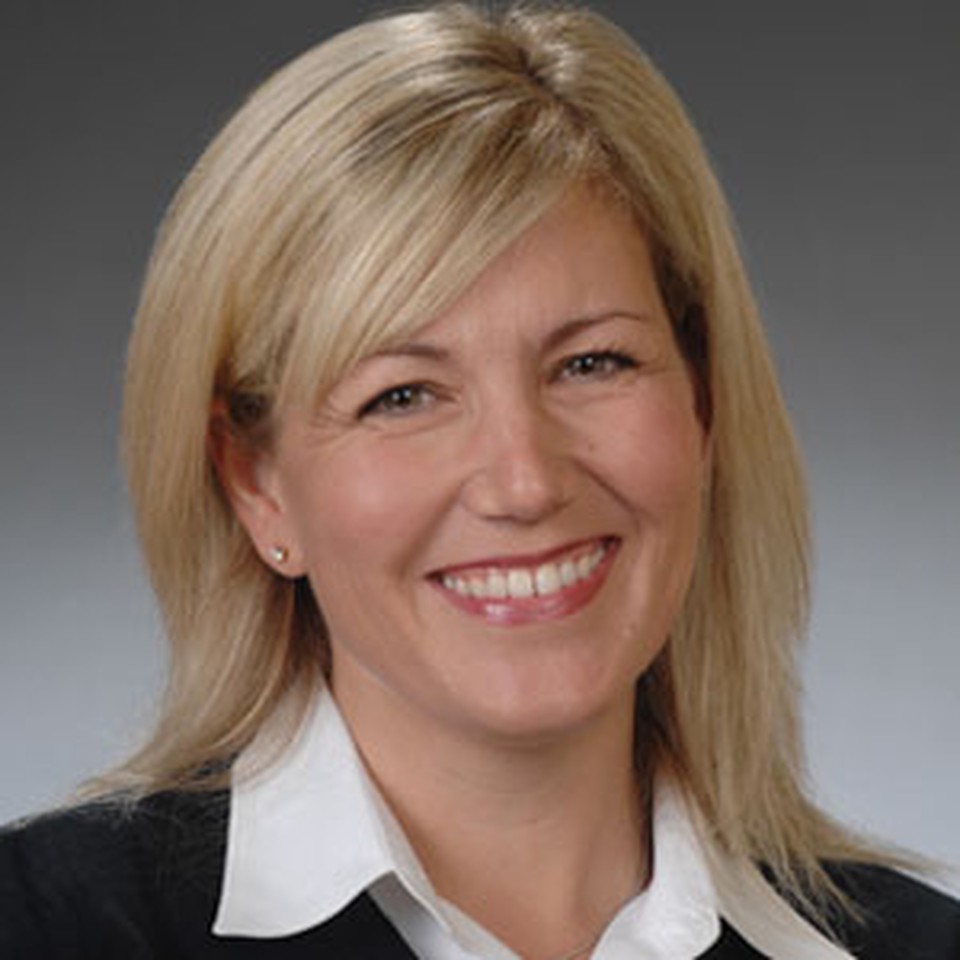
Sarah Irvine Belson
Dr. Sarah Irvine Belson holds a PhD from Arizona State University in Curriculum and Instruction with a cognate in Special Education. Her research explores educational opportunity for children with disabilities and teacher education policy. Her focus on applied interventions for children at risk attends to two major areas of research, namely special education technology and teacher education policy and practice. She is the author of over 50 research papers and chapters on practice and policy in special education and education reform. Dr. Irvine Belson’s experience as a K12 special educator and her focus on interventions designed to increase educational opportunity for children with disabilities is a cornerstone of her research and teaching. In addition to her work in policy and practice, she also collaborates with colleagues across departments at American University, including Anastasia Snelling (health studies) and Kiho Kim (environmental science) to inform policy and improve outcomes for children. Dr. Irvine Belson served as Dean of the School of Education, Teaching & Health from 2002-2015, a role in which she was pleased to support faculty and students in pursuit of excellence in the classroom, in the field, and in research.
In The News
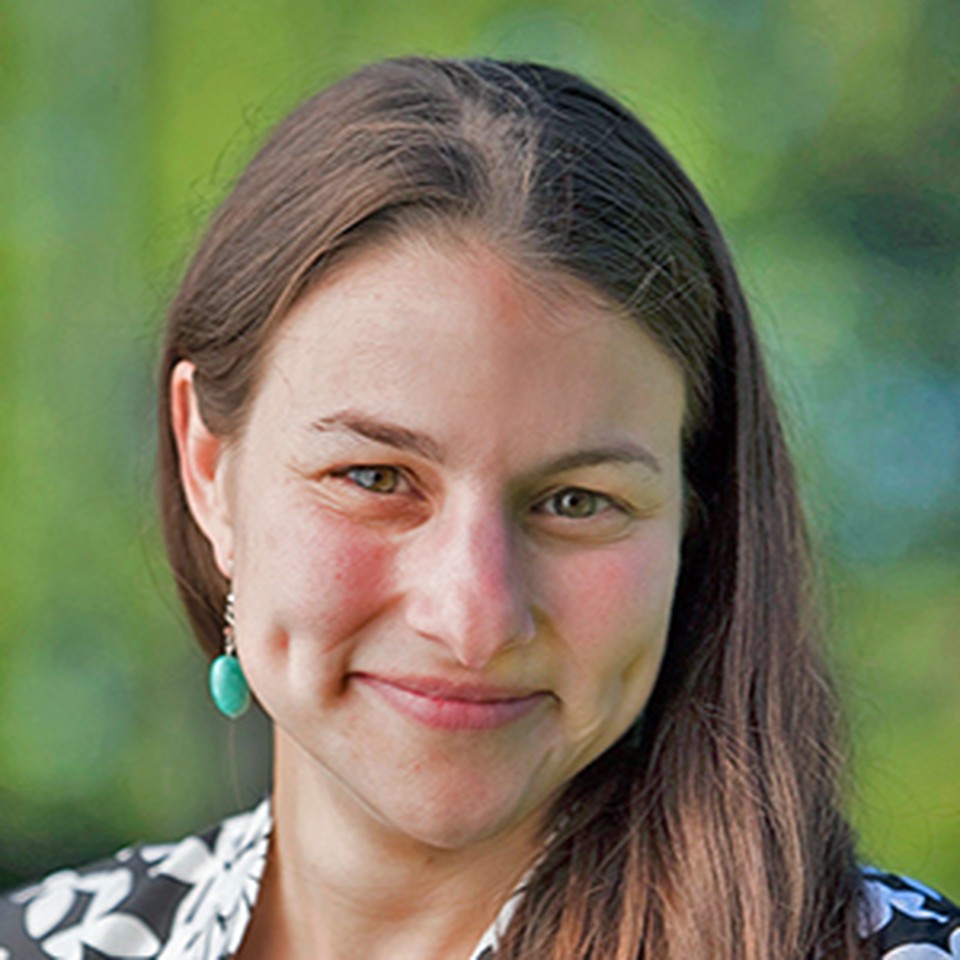
Samantha Cohen
Samantha directs the School of Education’s doctoral studies, and she is responsible for launching the inaugural, practitioner based program in education leadership and policy. Samantha teaches courses in the doctoral program and in the masters in education policy and leadership. She started her career as a first grade teacher in Atlanta, working with students and families to build partnerships and future pathways. Samantha believes education ought to unlock potential, rather than serve as a gatekeeper. In addition to teaching, Samantha has held various leadership positions. She’s worked as an instructional coach, district administrator, charter staff member, foundation leader, and served in adjunct roles in higher education at Georgetown University and Johns Hopkins University School of Education. The unifying elements across her career are teaching, building generational leadership, learning, and deepening her awareness of equity. Samantha is the proud mom of her son, Julian. The challenge of being the mom of a toddler and being a new mom in general, is teaching Samantha to continually remain in learning mode.
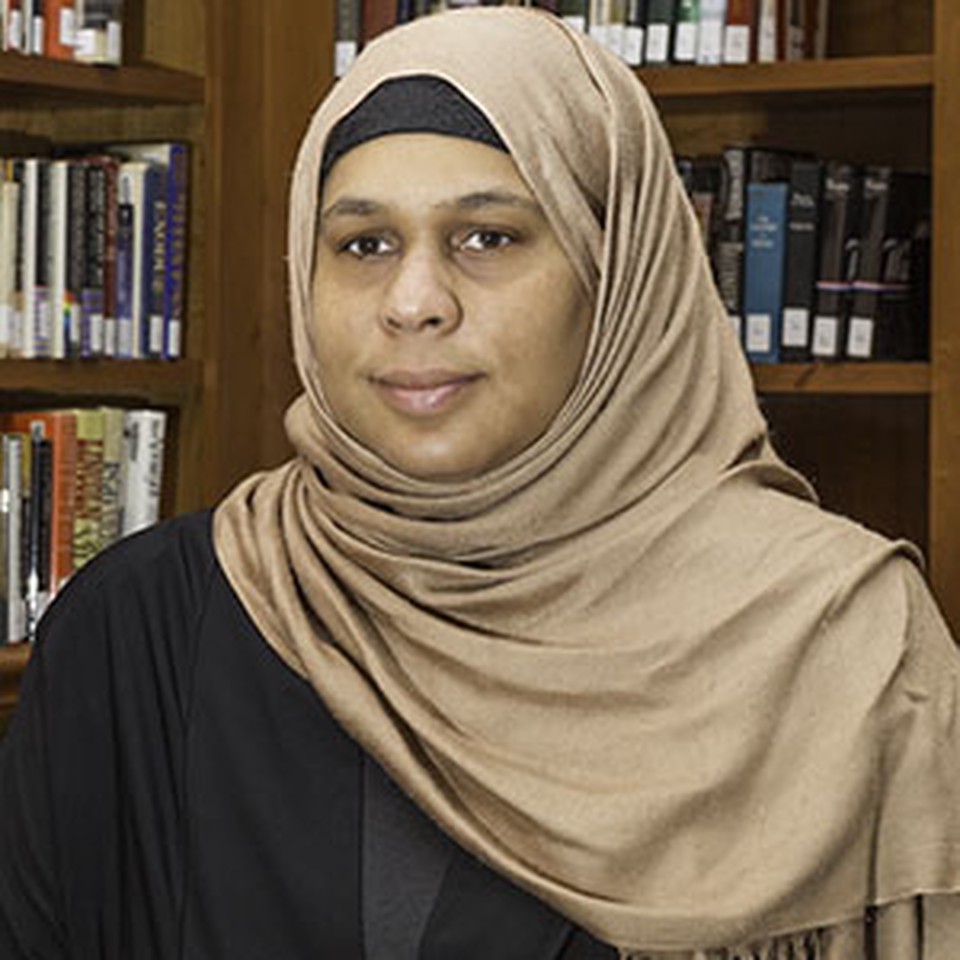
Amaarah DeCuir
Dr. DeCuir is an Education Leadership scholar whose work, broadly speaking, focuses on the intersections of leadership, gender, and diverse cultural contexts to advance social justice.
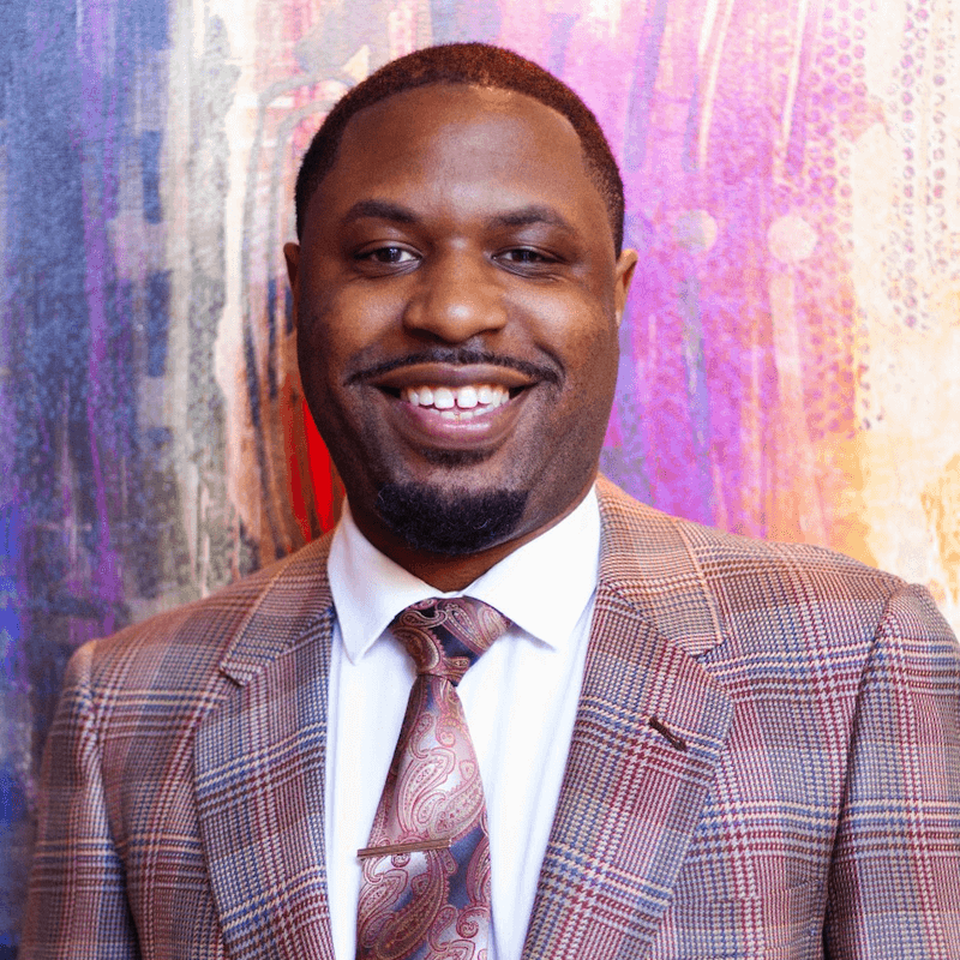
Antonio Ellis
Dr. Antonio L. Ellis is a Scholar in Residence and Director of the Institute on Education Equity and Justice at the American University School of Education. He teaches special education courses and advises students in the educational leadership and policy doctoral program. Dr. Ellis received his doctoral degree in educational leadership and policy studies from Howard University. He holds additional academic degrees in educational administration, theological studies, and special education and human development. Dr. Ellis is a recipient of the prestigious distinguished alumni award from the Howard University School of Education due to his award-winning scholarly contributions to the field of education. To this extent, he has written numerous peer-reviewed journal articles, book chapters, book reviews, and expert opinion commentaries. In 2016 Dr. Ellis published a book titled “Ed.D. Programs as Incubators for Social Justice Leadership”, and in 2017 he released a book titled “Transitioning Children with Disabilities: From Early Childhood through Adulthood”. He has served as an inclusion teacher, central office administrator, and school building administrator with the District of Columbia Public Schools. In addition to his work in K-12 settings, Dr. Ellis served as an adjunct professor in the College of Charleston Teacher Education Department and the Howard University School of Education Department of Educational Leadership and Policy Studies. His passion is advocating on behalf of persons with disabilities, with a special emphasis on African American males who are speech impaired. Dr. Ellis’ research interests include social equity, pastoral care, pastoral ethics, educational leadership, multicultural education, critical race theory, and special education.
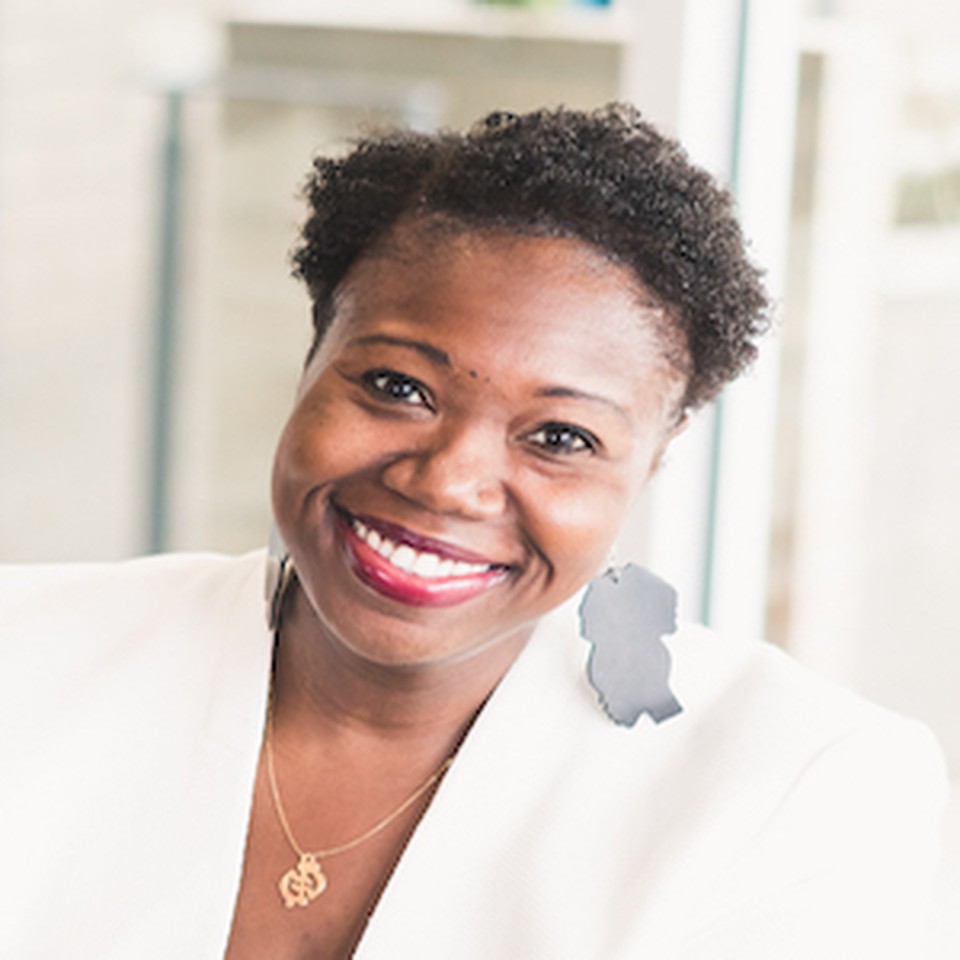
Annice Fisher
Dr. Annice E. Fisher does not tie herself to a particular sector. She sees herself as a Mindset & DEI coach for folks ready to learn tools to use their choice and power to “walk in the highest version of self” (trust and love). As the CEO & Founder of The BEE FREE Woman and Developing Capacity Coaching, LLC, she coaches individuals and teams to use conscious leadership as a tool for inner healing and advancing equity. Prior to entrepreneurship, Annice began her career in higher education administration, working across the US in a variety of areas including academic and student affairs, leadership development, retention, and developing system-level K-12 educators. As an adjunct professor at American University, she coordinates the executive coaching program for the Education Policy and Leadership doctoral program and teaches Exercising Conscious Leadership. With more than 15 years of experience leading individuals, teams, and organizations through the change process, Annice often serves as a writer, speaker, and panelist on topics related to leadership, social justice, mindset, and entrepreneurship. She is wrapping up her first book, The Power Within Me.

Reuben Jacobson
Dr. Reuben Jacobson has worked at the intersection of education research, policy, and practice for nearly 20 years. He is committed to educational change and equity and has substantial experience designing and implementing strategies that bring stakeholders together to work on common challenges. Reuben served as the Deputy Director for the Coalition for Community Schools at the Institute for Educational Leadership (IEL) where he helped grow and strengthen community schools by mobilizing national partners and local leaders. He has researched and written about the growing field of school and community partnerships for organizations such as the Brookings Institution and the Center for American Progress. Reuben worked at the American Institutes for Research as an education research analyst and spent two challenging and wonderful years teaching fifth and sixth grade students in D.C. Public Schools as a D.C. Teaching Fellow. He is an alumnus of the Education Pioneers Fellowship and IEL’s Education Policy Fellowship Program.
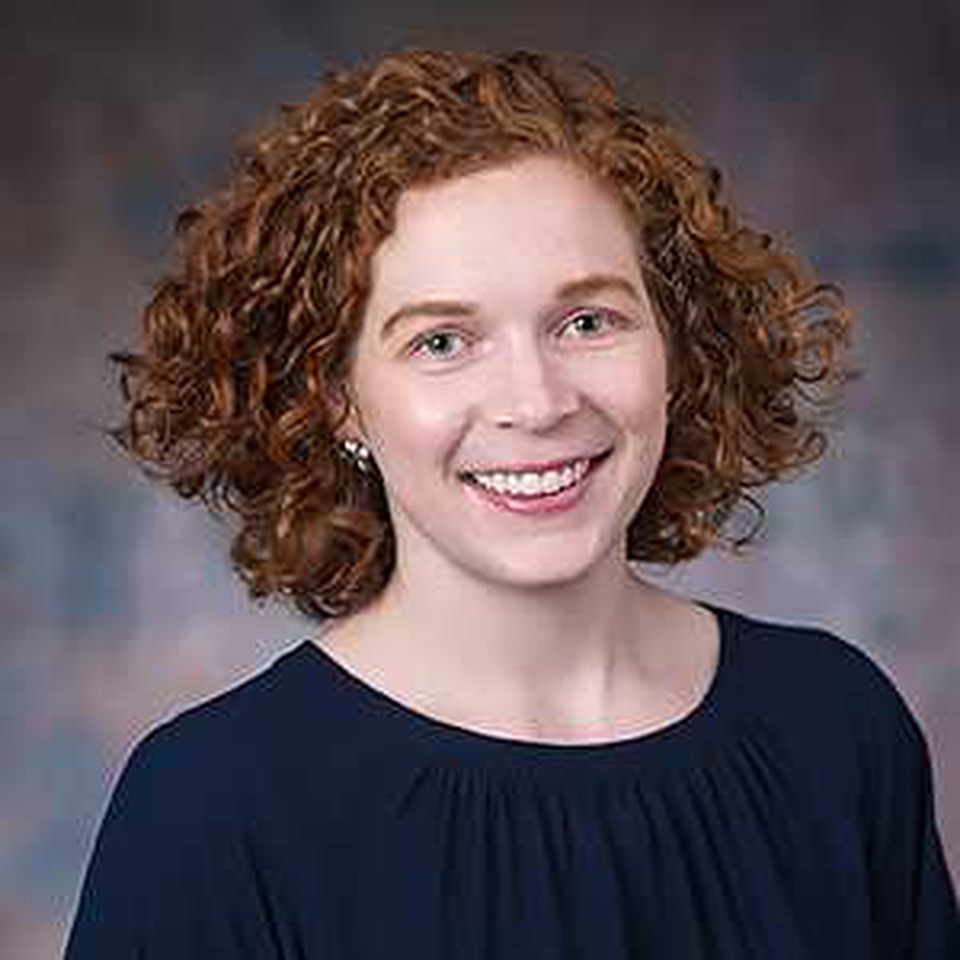
Anne Karabell
Annie Karabell joined the Institute for Innovation in Education at the School of Education in 2019. Her research interests include early childhood literacy, reading disabilities, and inclusive instructional practices. She currently serves as the program director for the Early Intervention Leadership (ELI) cohort of the EdD program; the lead instructor for the Collaborative for Reading Science and Inclusive Classrooms, a project funded by OSSE’s Special Education Enhancement Fund; and the lead instructor for the Leadership Institute in Secondary Special Education (LISSE). Annie is a board member of the DC chapter of the International Dyslexia Association and also enjoys mentoring teachers at the DC Reading Clinic. Prior to coming to AU, Annie served as an AmeriCorps volunteer, taught high school English in both public and private schools, led teacher professional development, and worked with students with learning disabilities as a literacy specialist in private practice.
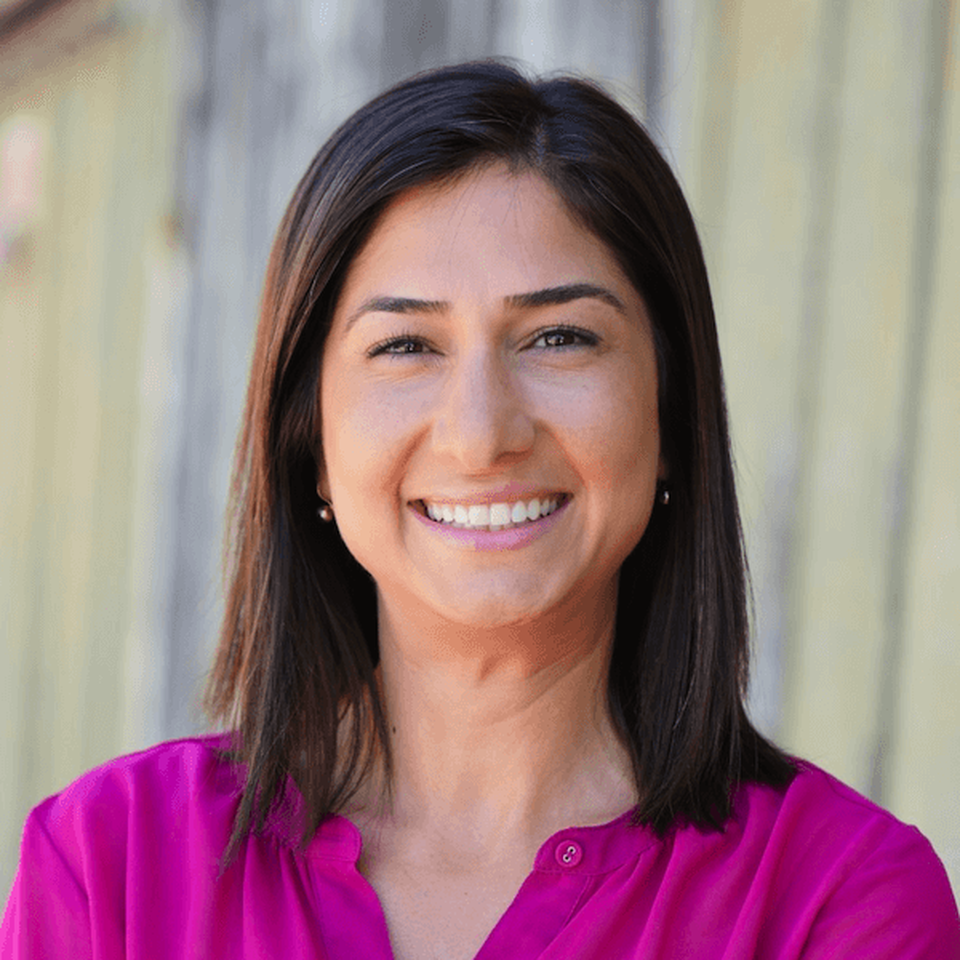
Edit Khatchatryan
Edit Khachatryan is an improvement facilitator, researcher, and educator with a mission to create lasting educational improvements by facilitating and strengthening collaborative learning among educators. In order to truly address educational disparities and ensure sustainable change for our most vulnerable students, Edit believes that we must invest in accessing and utilizing both research and practitioner expertise within our system. She recently founded Sovoroom, an organization committed to supporting continuous improvement though professional development, research, and strategy development.
Edit was most recently an associate at the Carnegie Foundation for the Advancement of Teaching, supporting organizations to utilize improvement science methodologies to address persistent problems in education. She taught and coached members of networked improvement communities (NICs) to utilize improvement science tools to understand a problem, develop a theory of improvement, and conduct inquiry cycles across different contexts to learn and make improvements on the problem. Edit recently co-authored an article with Emma Parkerson on how to organize the social dimensions of school improvement in Kappan magazine.
Edit started her career in education as a high school history, government, and economics teacher, serving students in the Los Angeles and Glendale Unified School Districts. She cares deeply about strengthening the teaching profession and ensuring that educators have collaboration time, the necessary supports and resources, and authentic professional development opportunities. The desire to understand how to do this well led her out of the classroom to engage in federal policy at the U.S. Department of Education as a Teaching Ambassador Fellow in 2010, and then to earn her doctorate at Stanford University. Edit’s scholarly work has focused on feedback on teaching from classroom observations, teacher professional development, teacher and district leadership development, and improvement coaching. Edit holds a BA in Sociology, two master’s degrees and teaching and administrative credentials from UCLA, and a PhD in Curriculum and Teacher Education from Stanford University.
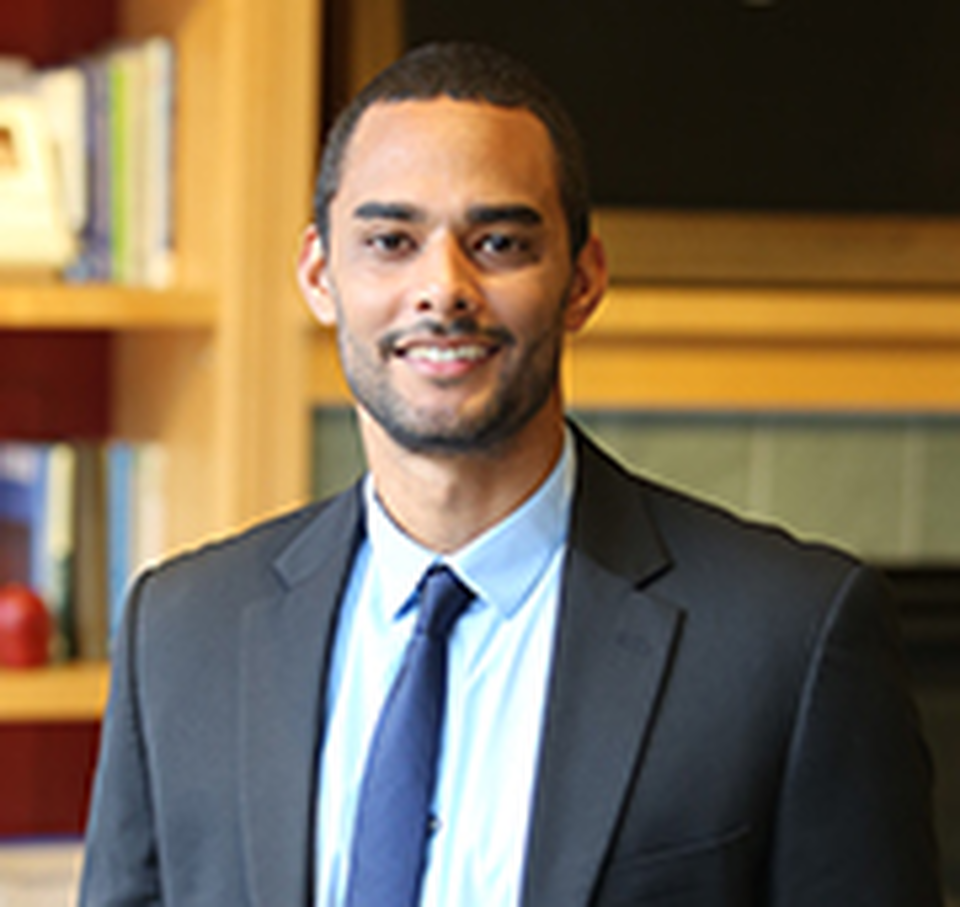
Stefan Lallinger
Stefan Lallinger is a fellow at the Century Foundation and the Director of TCF’s Bridges Collaborative. He focuses on issues of racial and socioeconomic integration, equity, school governance, and district-charter relationships. Dr. Lallinger previously worked as a Special Assistant to Chancellor Richard Carranza in the New York City Department of Education working on agency policy and strategy. He earned his doctorate from Harvard University, where he studied integration and school district leadership. At Harvard, he received a fellowship with the Reimagining Integration: Diverse and Equitable Schools (RIDES) Project, coordinated the Education Redesign Lab’s By All Means Initiative in Providence, RI, and facilitated professional learning for some of the nation’s largest districts with the Public Education Leadership Project (PELP) held at Harvard Business School.
Prior to graduate school, Dr. Lallinger led Langston Hughes Academy, a Pre-K through 8th grade open-enrollment school in the Recovery School District, in post-Katrina New Orleans, where he served as principal, assistant principal and teacher for nine years. Before moving to New Orleans, he coordinated a boys mentoring program in Providence, RI. Inspired by his grandfather Louis Redding, a civil rights lawyer, Stefan has been a fierce advocate for integration and equity throughout his career.
He holds BAs in Political Science and Development Studies from Brown University, an MA in History from the University of New Orleans and a doctorate in Education Leadership from Harvard University.
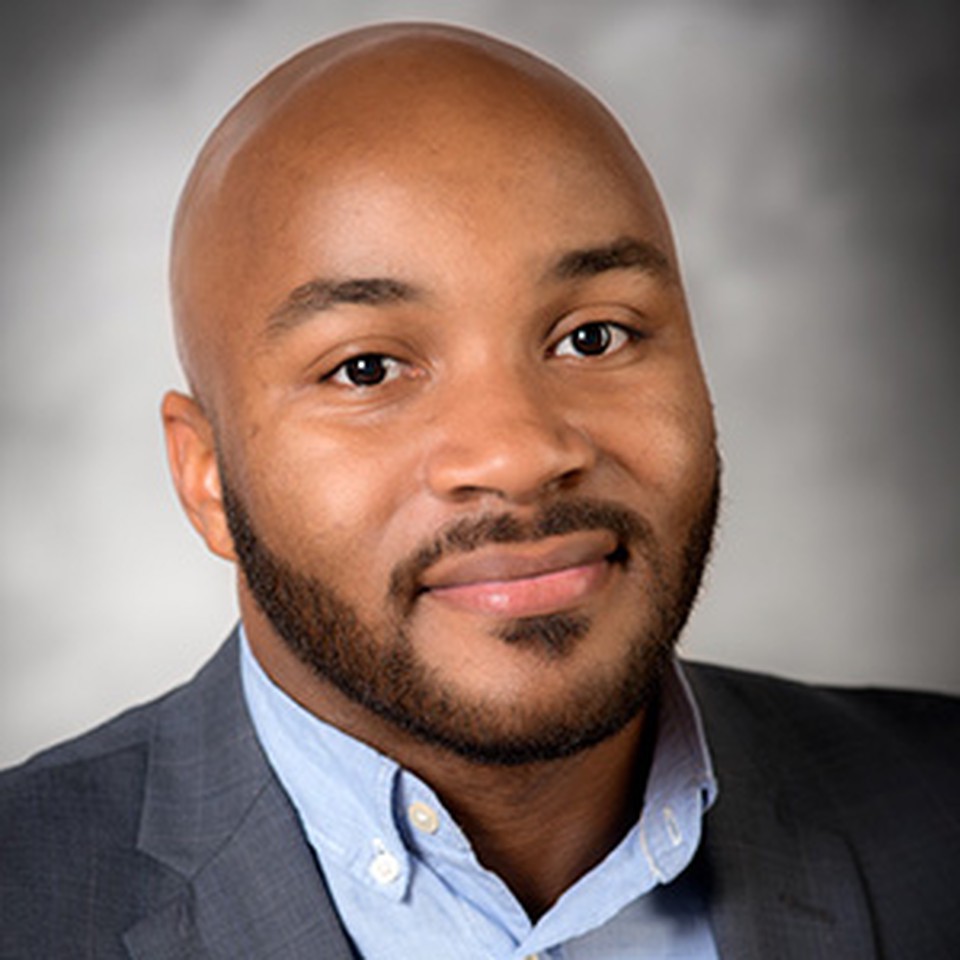
Brian McGowan
Brian L. McGowan, Ph.D. is an Associate Professor of Education and Associate Director of Pedagogy and Higher Education Research in the Center for Teaching, Research, and Learning at American University. A critical constructivist, McGowan’s research focuses on Black male college student and faculty experiences in postsecondary educational contexts. More specifically, his research explores their interpersonal relationships, identity, achievement, and classroom practices. McGowan’s scholarship and professional practice have been praised through awards and honors from professional associations and higher education institutions including the New Leader Award from the College of Education and Human Ecology at The Ohio State University (2020), the Distinguished Research Scholar Award from the University of North Carolina at Greensboro School of Education (2018), and the inaugural Tracy L. Davis Outstanding Emerging Research Award from College Student Educators International (ACPA) Coalition on Men and Masculinities (2016). He is the co-editor of two books – Men and masculinities: Theoretical foundations and promising practices for supporting college men’s development (2019), and Black men in the academy: Narratives of resiliency, achievement, and success (2016). McGowan is the author of over 25 scholarly publications that appear in high-impact, peer-reviewed journals including the Journal of College Student Development, Equity & Excellence in Education, American Journal of Evaluation, and Journal of Men’s Studies (among others). He has delivered over 50 presentations and invited talks at colleges and universities and professional conferences and is active in professional associations, including the American Educational Research Association, and the Association for the Study of Higher Education. McGowan earned his Ph.D. in higher education administration from Indiana University, M.A. in higher education and student affairs from The Ohio State University, and B.M in music education from Old Dominion University.
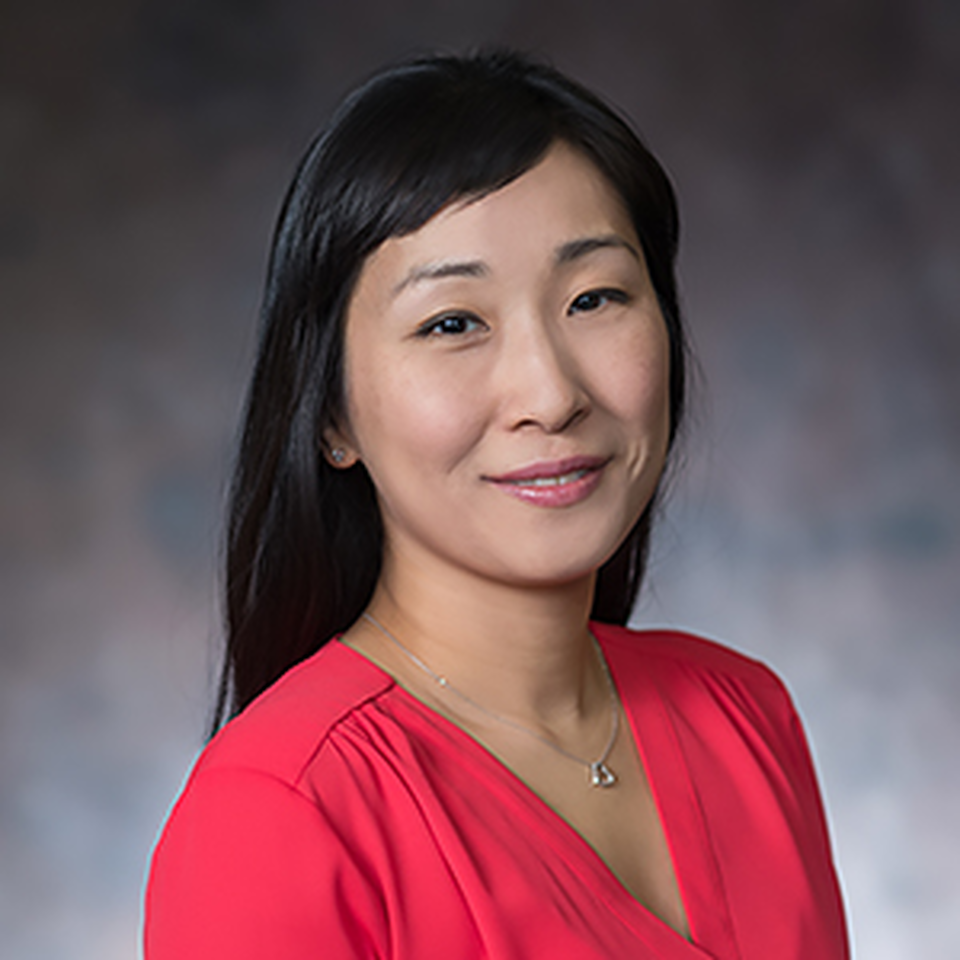
Hannah Park
Hannah Lee Park is the Education and School of Professional & Extended Studies Librarian at American University. Her professional roots began in the field of education. She started out as a high school English teacher in the Chicago Public Schools, has taught junior high school English in the Paris, France region, and has taught rhetoric and composition courses at the University of Illinois. Most recently, she was the Program Coordinator of the Multimedia Literacy Program at the Student Multimedia Design Center at the University of Delaware Library. While there, she collaborated with faculty on digital literacy instruction, taught classes on digital storytelling, video editing, podcasting, and the like, and assisted students in creating multimedia content for their course assignments. In her current role at American University, she works with students, faculty, and staff in the School of Education and School of Professional and Extended Studies on their research needs. She also oversees the Curriculum Materials Center, which contains children’s and young adult literature and K-12 teaching materials. Her research interests include digital and information literacy, multimodal composing practices, and equity, diversity, and inclusion.

Carolyn Parker
Carolyn Parker is the Director of the Master of Arts in Teaching Program in the School of Education. She began her career as a science educator as a Peace Corps volunteer in Guatemala. Upon her return to the United States, she earned an M.A. in science teaching and then taught high school science in New York State and Miami, Florida. Dr. Parker earned her Ph.D in Curriculum and Instruction from the University of Maryland College Park. Dr. Parker’s current research focus is twofold, focusing on teacher education and issues of equity and access in STEM education. Most recently, Dr. Parker was a principal investigator of a National Science Foundation Math-Science Partnership award, STEM Achievement in Baltimore Elementary Schools (SABES). The SABES project served nine high poverty Baltimore City elementary schools by improving STEM curriculum and instruction. The project included research focused on the development and delivery of rigorous curriculum supported by intensive and sustained teacher professional development that included in-school coaching, peer classroom visits and content intensive STEM Academies In addition to the school day component, the project offered a STEM-focused, out-of-school day program where students completed engineering-focused projects relevant to local communities. Dr. Parker’s has authored numerous book chapters, technical reports, and peer-reviewed papers. Her work appears in the Journal of Research in Science Teaching, Science Education, and Cultural Studies in Science Education. Prior to her arrival at American University, Dr. Parker taught the Johns Hopkins School of Education and the George Washington University.
In the News
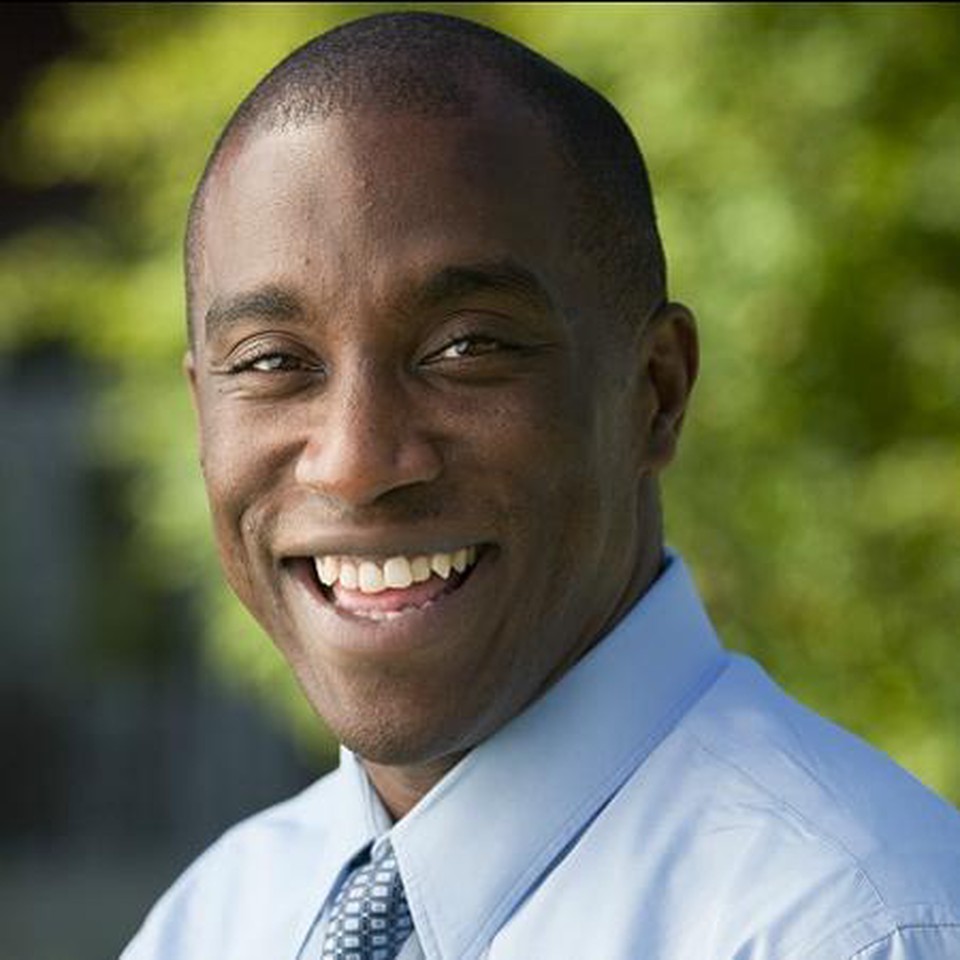
David Rease
David Rease, Jr. began his career in education as a high school social studies teacher in Durham, North Carolina. From there, he began working for the North Carolina Department of Public Instruction as an instructional facilitator Turnaround High Schools throughout the state. Rease the began a role as a systemic improvement consultant at McREL International based in Denver. As a member of the Systems Improvement Team, Rease managed on-going relationships with state, district, and school teams, supporting them using McREL’s improvement methods. After encountering tough political environments in public school systems, Rease had the opportunity to learn about the Adaptive Leadership Framework at the Harvard Kennedy School during fall 2013. Next, Rease became the Executive Director for the Prince George’s County, Md. Office of Continuous Systemic Improvement in July 2014. Here, he as been a part of the team that has brought a specific type of coherence to how PGCPS understands and approaches improvement, leveraging the Data Wise Improvement Process at the system’s improvement process for schools and central office departments. Rease holds a BA from Columbia University, MAT from Duke University, and EdLD from the Harvard Graduate School of Education.
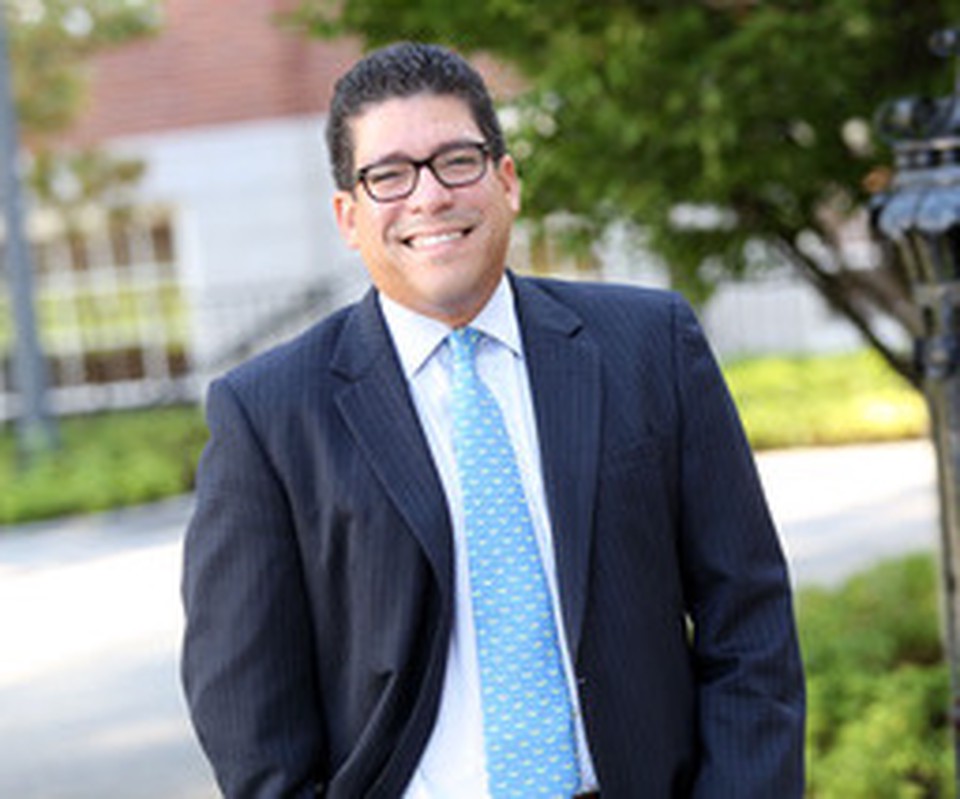
Kelvin Roldan
Dr. Kelvin Roldán is Deputy Commissioner for System Transformation, Rhode Island Department of Education. In that role, he oversees the Division of System Transformation, which includes the Office of School Improvement and the newly established Office of School System Planning and Improvement. An innovative leader with extensive experience managing change in education and government, Dr. Roldán is a former State Representative for Connecticut’s 4th Assembly District and Deputy Majority Leader of the House of Representatives. During his professional career, he has served as an advisor to two mayors and three superintendents in his home state of Connecticut. He holds a B.A. (Chinese and Political Science) from Middlebury College, an M.A. (Public Policy) from Trinity College, a Sixth-Year Diploma (Educational Leadership – Urban Concentration) from the University of Connecticut, and an Ed.L.D. (Doctor of Education Leadership) from Harvard University.
He studied advanced Chinese at the Middlebury Chinese School and the Harbin Institute of Technology in China. He was born in Puerto Rico and raised in Hartford, CT.

Robert Shand
Robert D. Shand is Assistant Professor in the School of Education at American University. He received his Ph.D. in Economics and Education from Teachers College, Columbia University. A former high school economics and government teacher, his interests lie at the intersection of research, policy and practice. His current research focuses on teacher improvement through collaboration and professional development and how schools and teachers use data from economic evaluation and accountability systems to make decisions and improve over time. Recent work with colleagues at the Center for Benefit-Cost Studies of Education at Teachers College has emphasized the unique opportunities and methodological challenges of evaluating complex partnership programs, including the university-school-community partnership Raising Educational Achievement Coalition of Harlem, and the comprehensive student support program, City Connects. He is a co-author of the third edition of Economic Evaluation in Education: Cost-Effectiveness and Benefit-Cost Analysis, and he has contributed to publications in the American Journal of Evaluation, Educational Evaluation and Policy Analysis, and the Journal of Research on Educational Effectiveness.
In The News
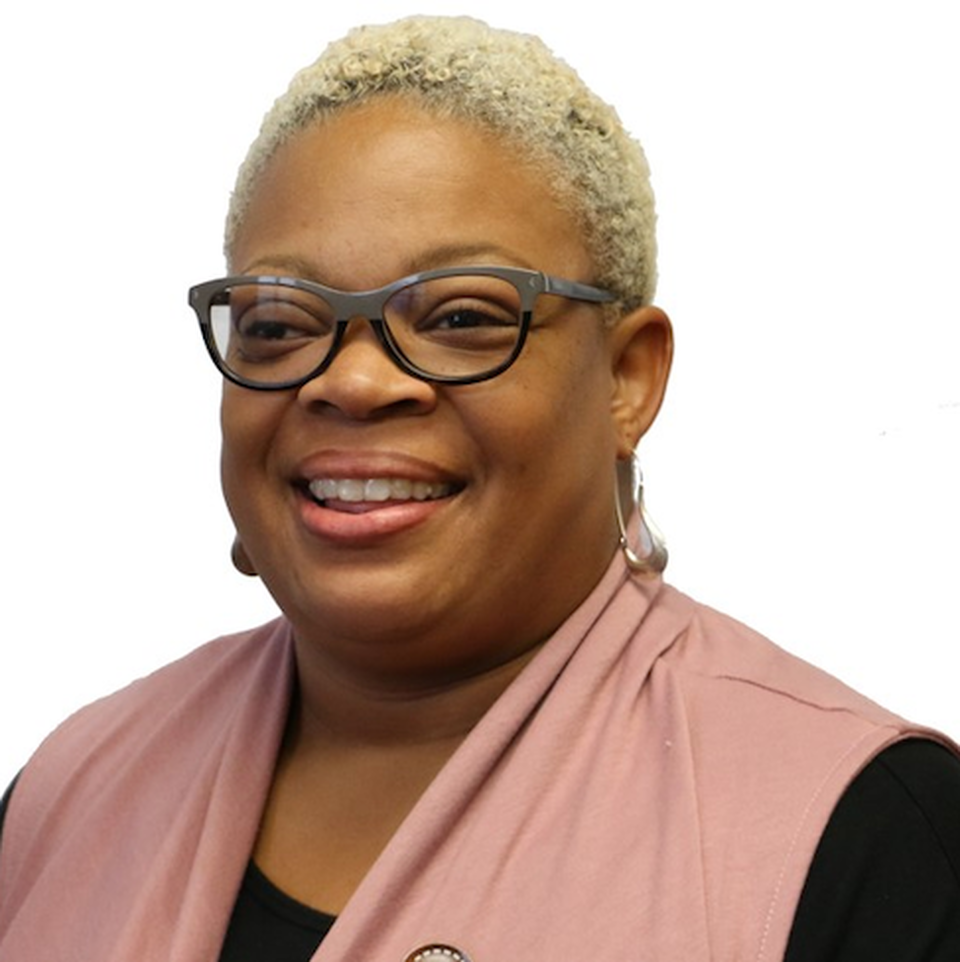
Michele Shannon
Michele serves as Executive Vice President of Client Services & Programs. She has spent her life dedicated to public education as a lever for equity and social change.
Michele has facilitated multi-district Leadership Academy programs including Foundations of Principal Supervision and Coaching for Equitable Practice and has served clients such as Clark County School District, NV, NYC Department of Education, Gwinnett County Public Schools, GA, Somerville Public Schools, MA, and the Nevada Department of Education.
Before joining the Leadership Academy, Michele served as the Chief of Schools for Boston Public Schools and the Sr. Director of Administrator Development for Los Angeles Unified School District. She has been a teacher, school social worker, assistant principal, and principal in the New York City Department of Education. She founded Pathways College Preparatory School: A College Board School in Hollis, NY. While getting a doctorate at Harvard Graduate School of Education in 2011, she co-founded Pursue Excellence, an education reform organization dedicated to supporting schools and districts in their use of data to improve outcomes for students.
Michele is a certified coach and teacher at the Data Wise Project at Harvard, and is the founder and principal consultant for Measure Excellence Consulting, which supports leaders, schools, and districts in their efforts to engage in continuous learning and improvement.
Michele is a product of the New York City public education system from kindergarten through college. She received her Bachelors of Science in Sociology from Bernard Baruch College and a Masters of Social Work from Hunter College at the City University of New York. She has an advanced certificate in School Leadership from the New York City Leadership Academy. Michele received a doctorate in Educational Leadership at the Harvard Graduate School of Education in 2013 and most recently received an advanced certificate in School District Leadership from Queens College, CUNY in 2015.
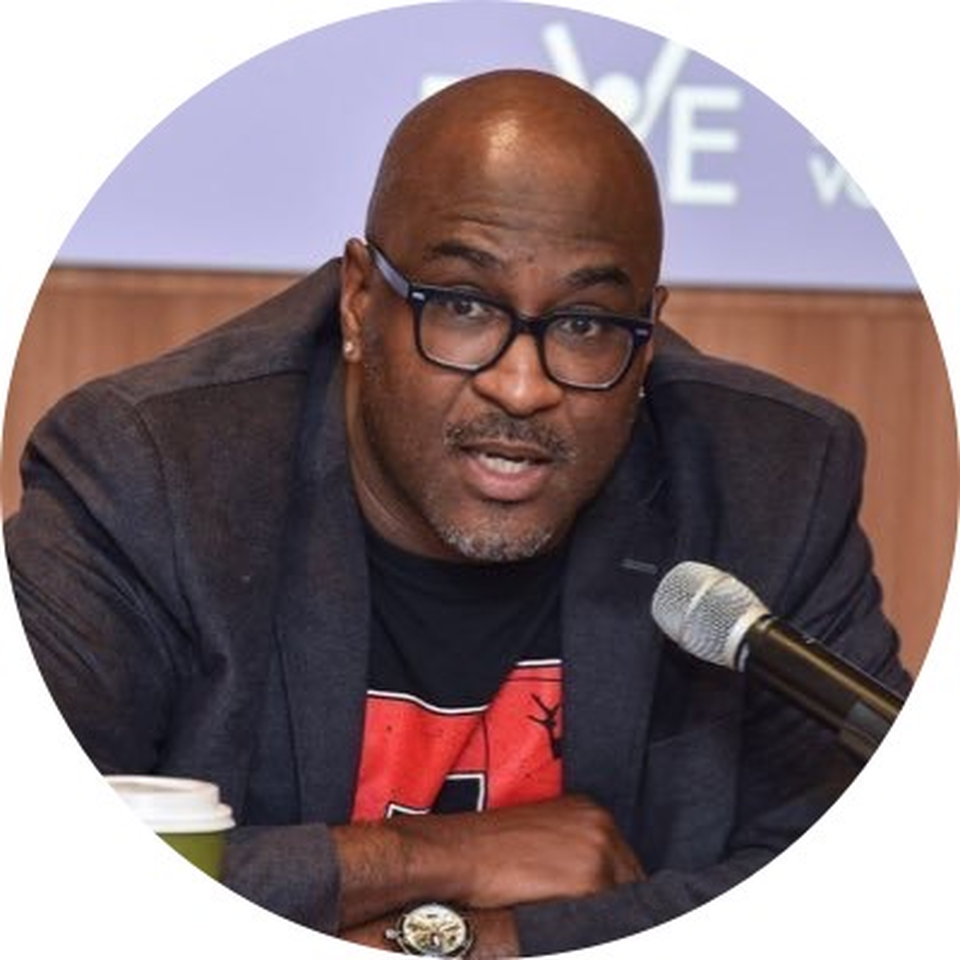
Robert Simmons
Robert Simmons III, EdD is a Senior Professorial Lecturer of Education Policy and Leadership in the School of Education at American University. His research focuses in three areas: Critical Race Theory, the Black experience in American schools and communities, and the intersection between antiracism and the Black leadership experience in education, community leadership and nonprofits. Robert has delivered workshops and keynotes throughout the United States and Europe, and been featured on CNN, the Kojo Nnamdi Show (DC), the Marc Steiner Show (Baltimore) and the Pulse with Karen Dumas (Detroit)—as well as other media outlets in Detroit, Los Angeles and Washington DC. During his career, Robert has served in senior leadership roles in the nonprofit sector and a large urban school system. Dr. Simmons was the Director of the Center for Innovation in Urban Education and Institute for Urban Catholic Education at Loyola University Maryland. As a tenured associate professor of urban education and science education, with a joint appointment in African/African American Studies, Dr. Simmons served as a research associate at the Baltimore Education Research Consortium at Johns Hopkins University. Dr. Simmons has published his work in numerous journals, including Urban Education, the International Journal of Critical Pedagogy, and the Journal of Education and Social Policy. Additionally, Robert has authored various technical and policy reports focusing on racial justice in schools, and the role of philanthropy in the Black community. His next book, Interrupting the School to Prison Pipeline: African American Males as Critical Scholars and Intellectuals, is part autobiographical reflecting on his fathers’ incarceration while offering insights into the educational experiences of African American males.
A former middle school science teacher in the Detroit Public Schools, Robert was nominated twice as the Walt Disney National Teacher of the Year and once for the Whitney and Elizabeth MacMillan Foundation Outstanding Educator Award. Additionally, Robert was the first non-full time faculty member to receive the Faculty of the Year of the Year Award from the Graduate School of Education at Hamline University. As a fellow with the Woodrow Wilson Fellowship Foundation and the Fulbright Memorial Fund, Robert traveled to Costa Rica and Japan to study educational systems and conduct environmental research in the rainforest. Currently, Robert serves as the national chair of the Diversity, Equity and Inclusion advisory board for FIRST Lego Robotics, a board member for Black Girls Code, and on the leadership council for Echoing Green’s Black Male Achievement fellowship. Selected for the Outstanding Alumni Award from the College of Education and Human Development at Western Michigan University and the BE Modern Man Award from Black Enterprise, Robert has dedicated over 20 years of his professional life to supporting urban youth, their families and the community.
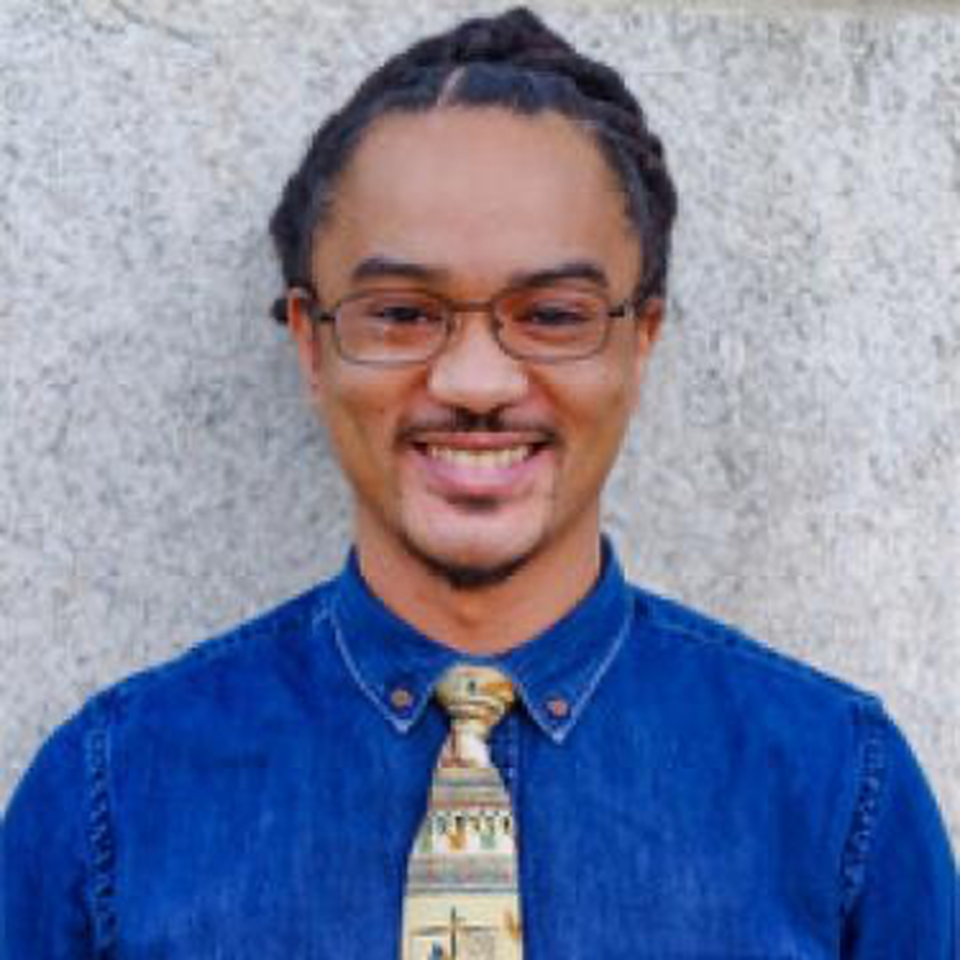
William Thomas
Dr. Thomas has been a K-12 teacher, school principal, and program director for the past 18 years, all in the service of equity in education. Many of his education practitioner and leader positions have been in DC schools, for example as a Biology Teacher at Ron Brown College Preparatory High School and as the Principal of Community Academy Global Campus. Most recently, he was the Director of Science at Mastery Charter School, where he led and managed the science program for over twenty elementary middle, and high school campuses. Dr. Thomas received a doctoral degree in education leadership from the University of Pennsylvania, where his dissertation focused on the career trajectories and retention of Black Male Teachers who graduated from Morehouse College.
